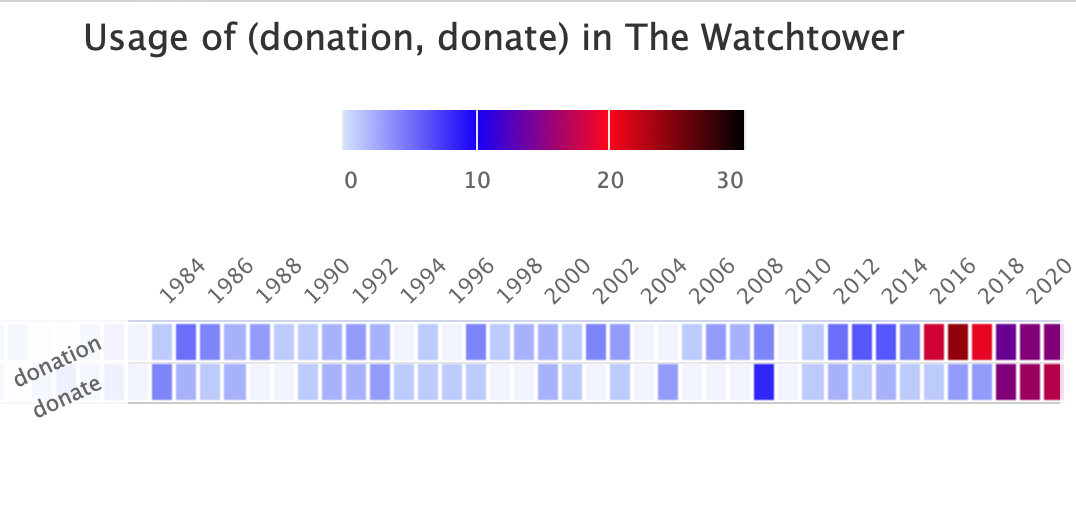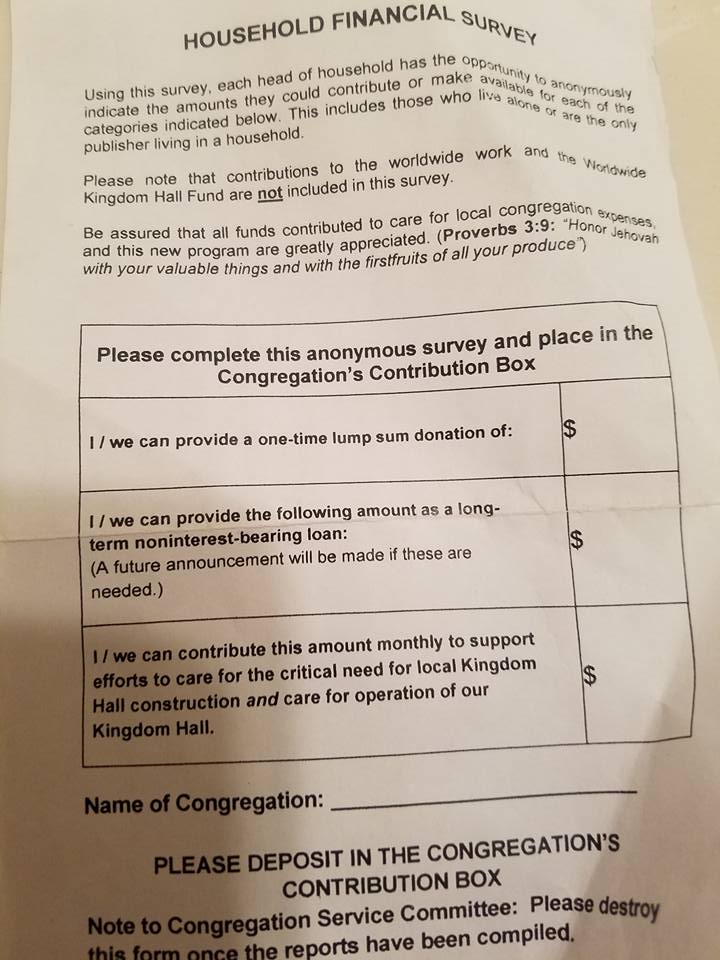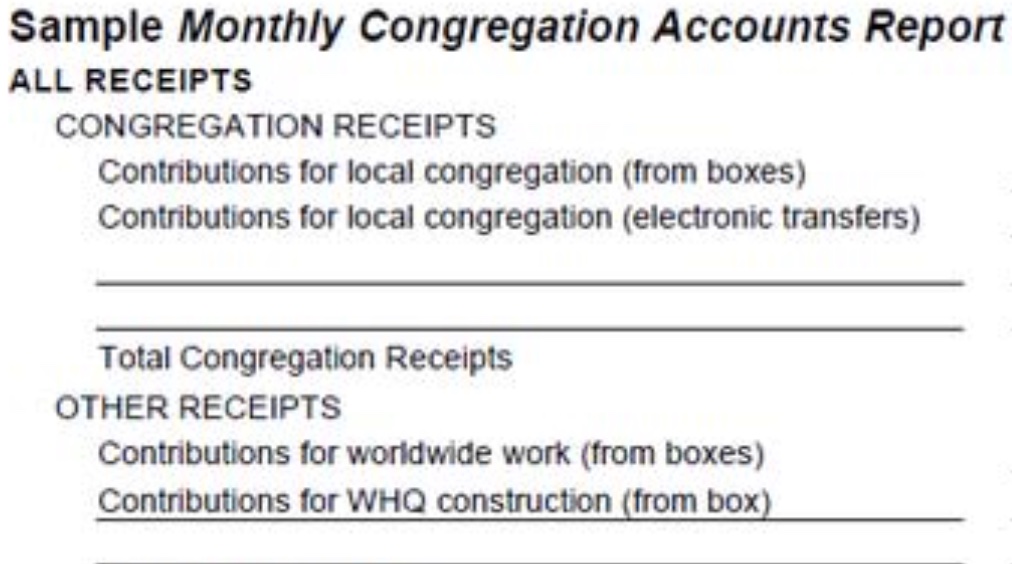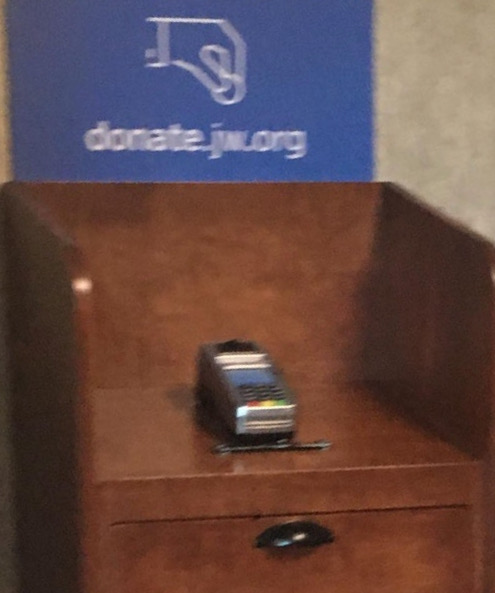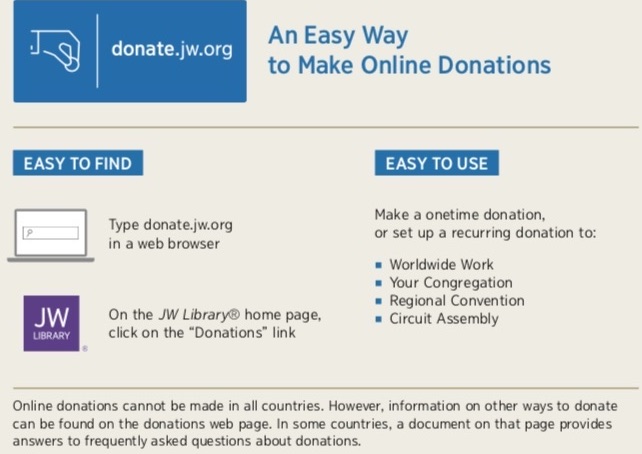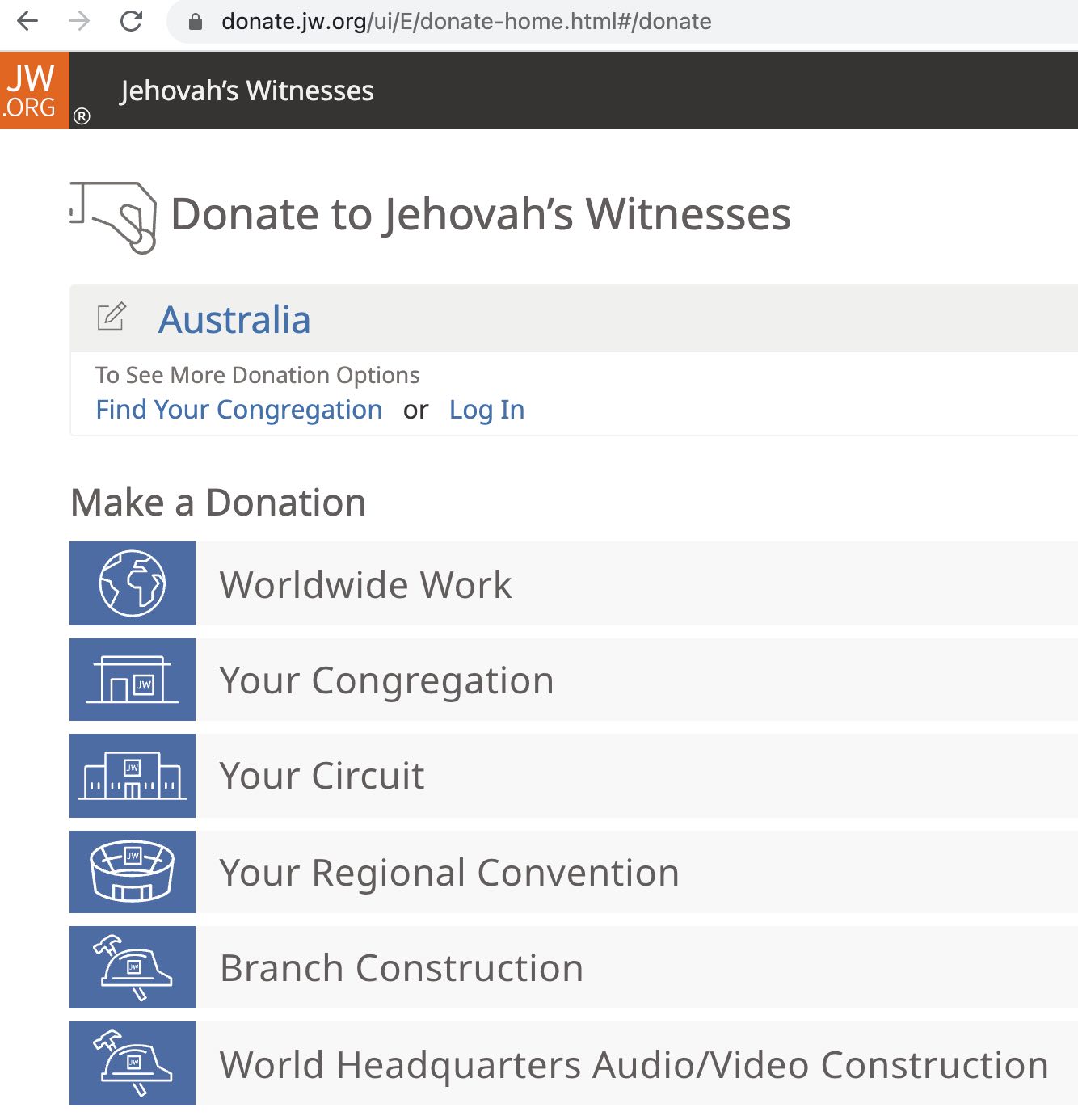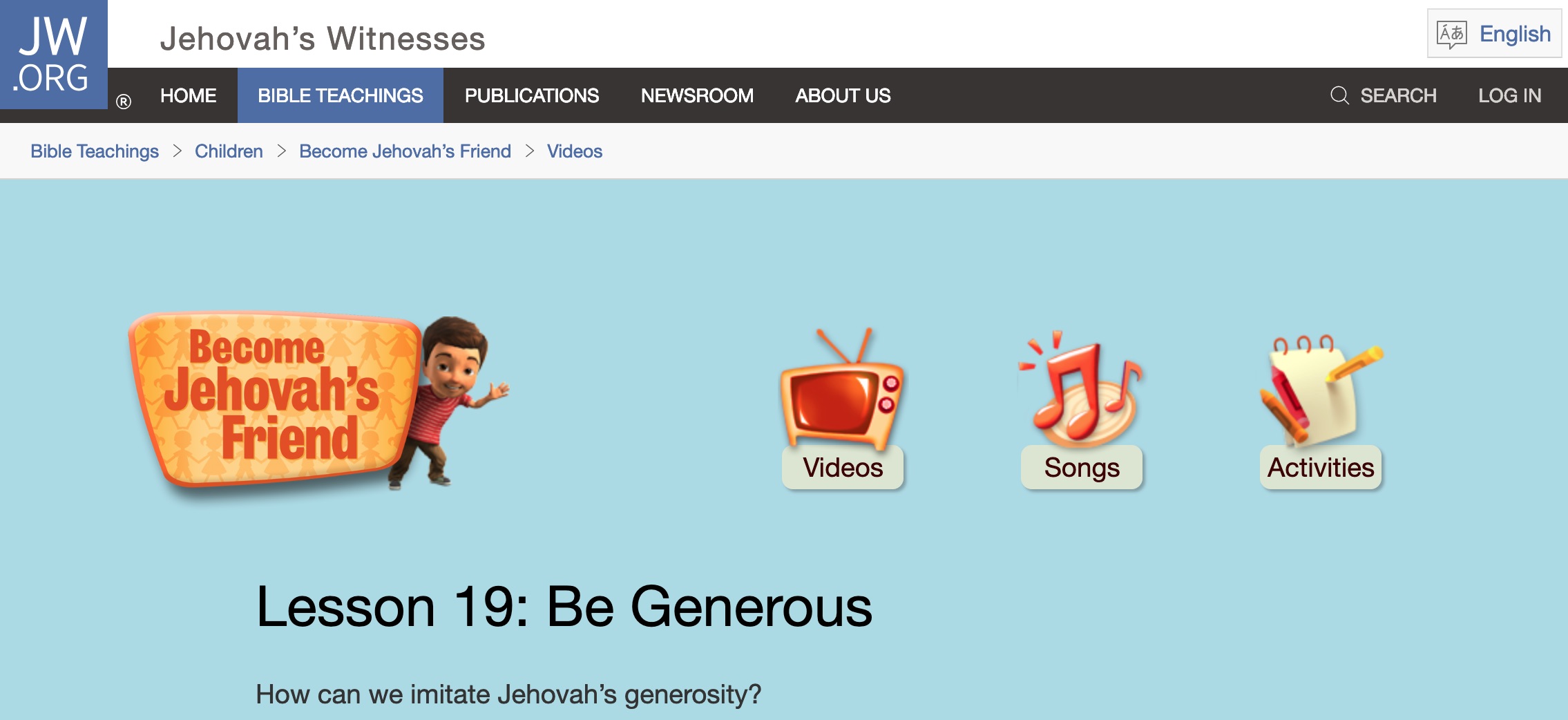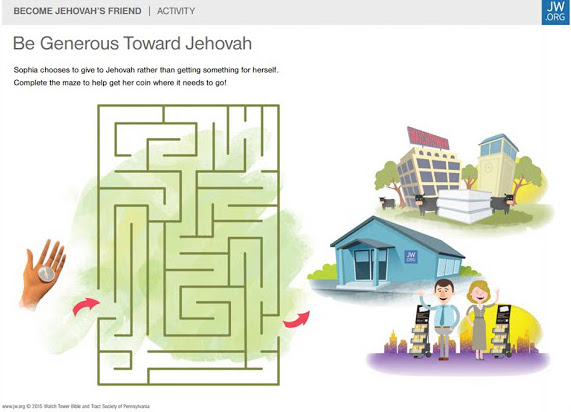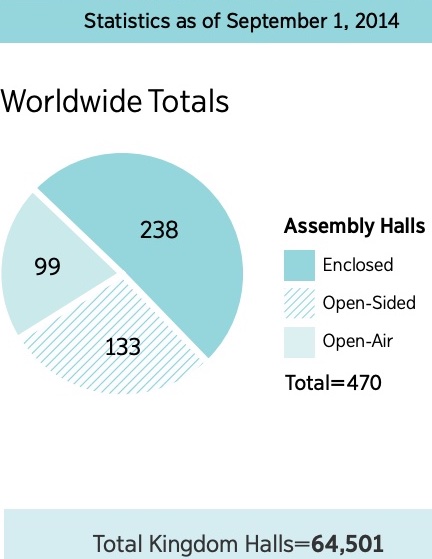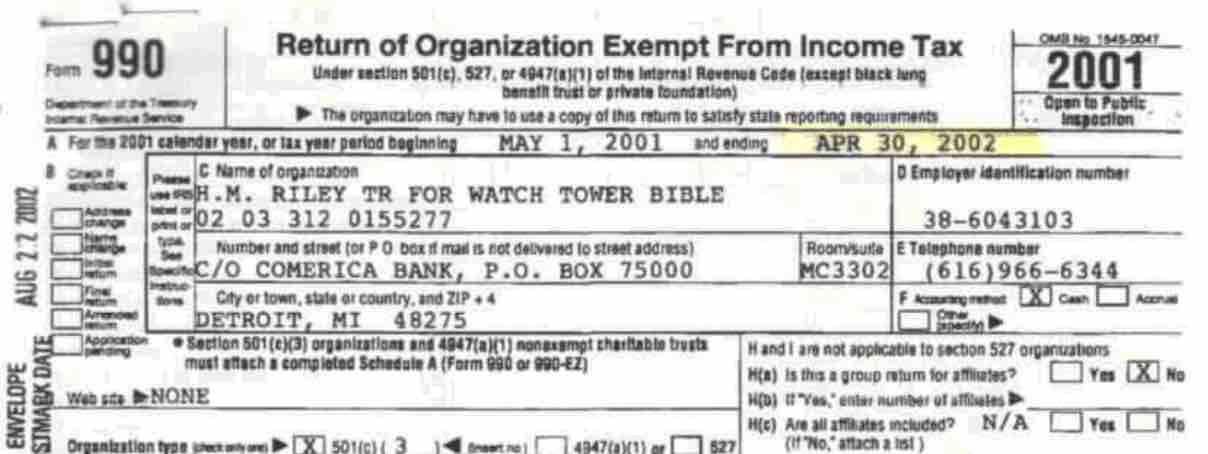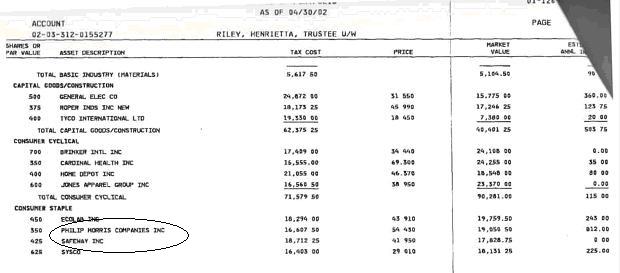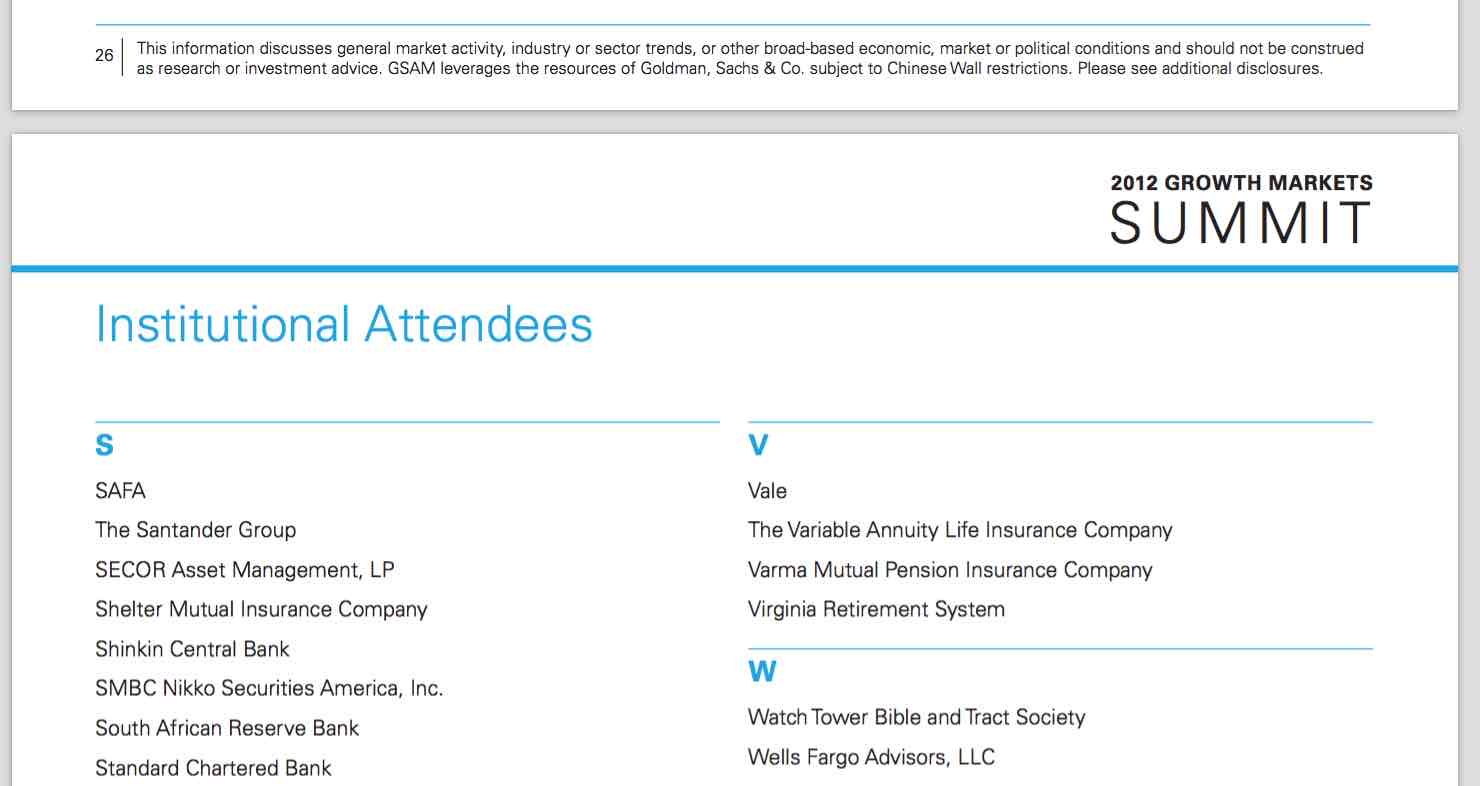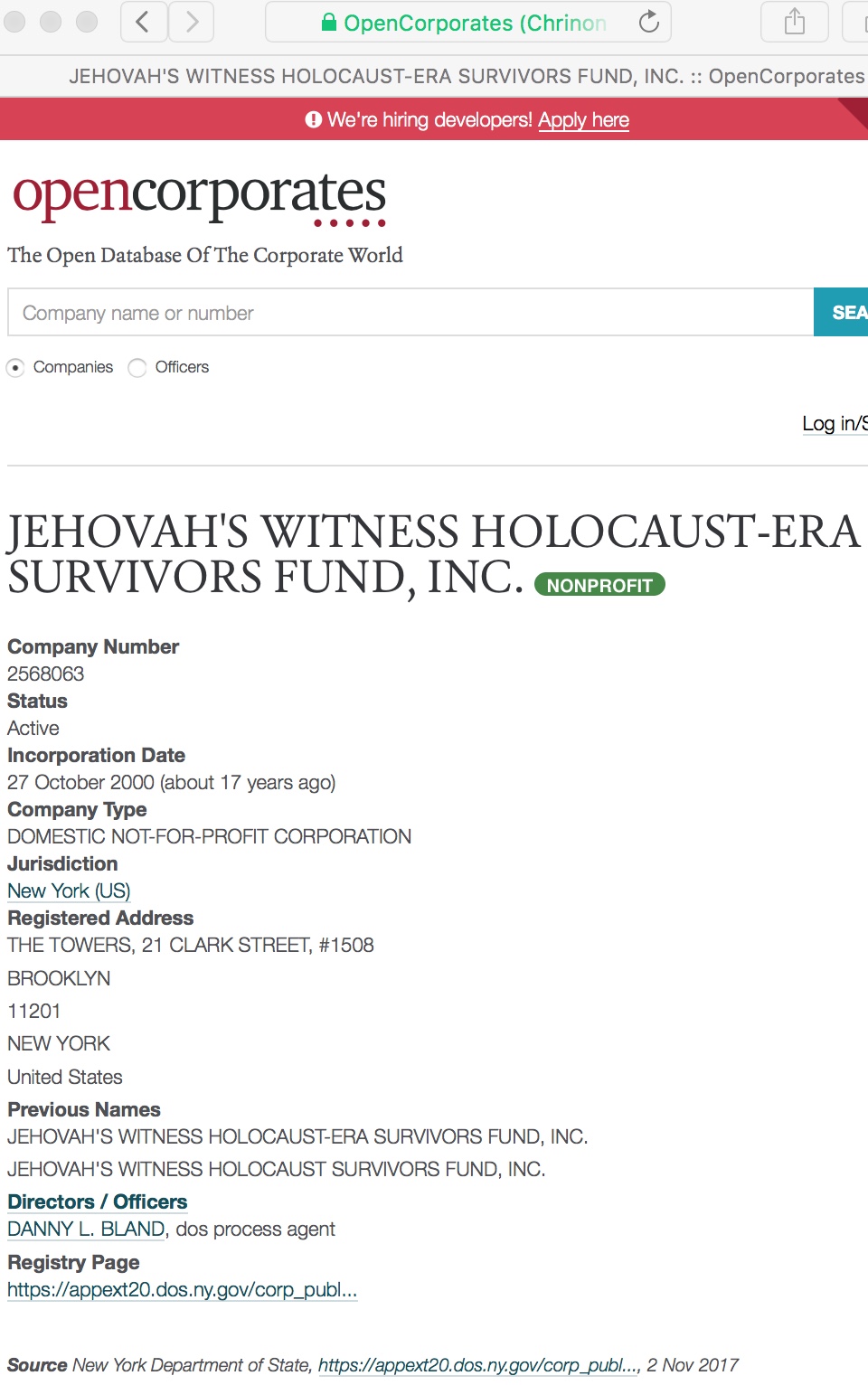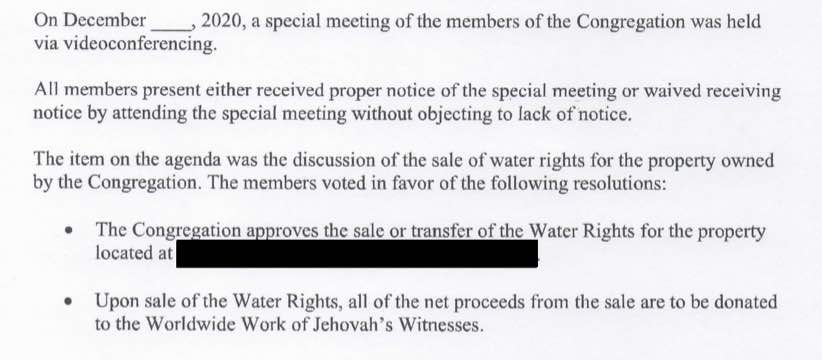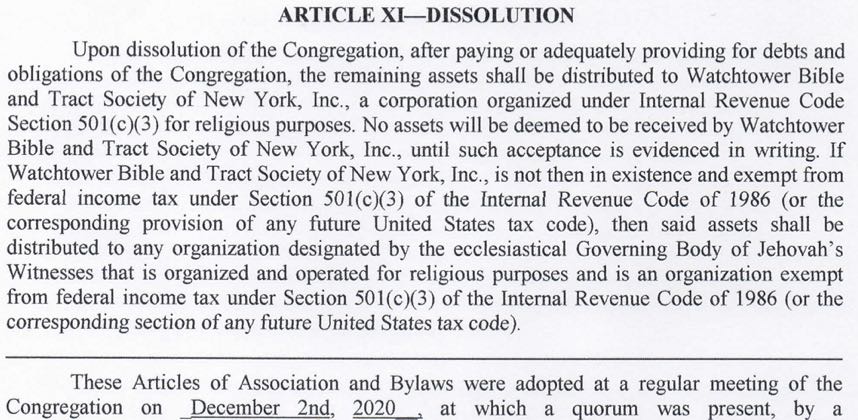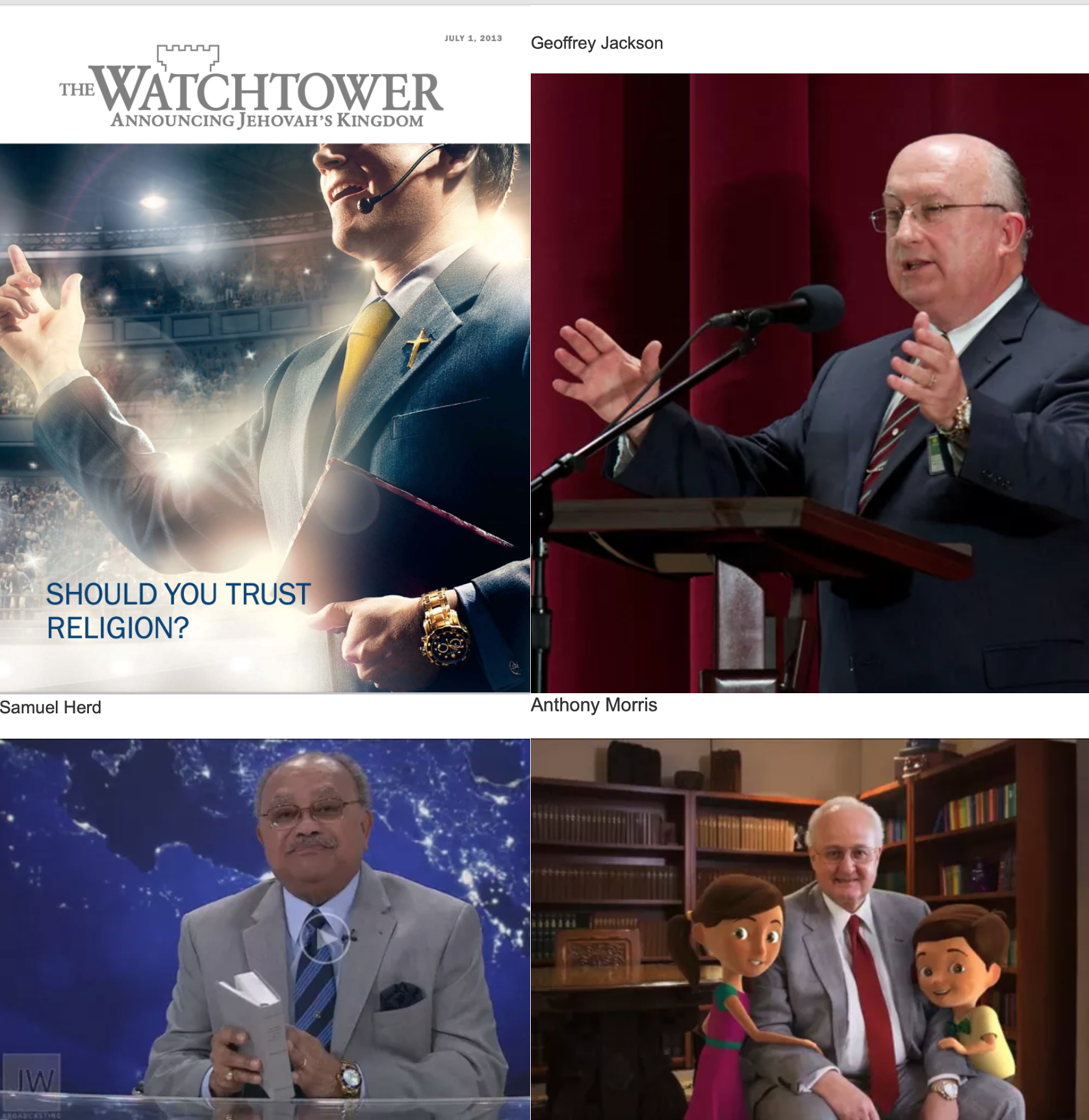Donations and Watchtower Finances
Watchtower long prided itself on not soliciting money, criticising greedy Churches for demanding collections and tithes. Yet, with billions of dollars in assets around the globe, is Watchtower really different from other religious groups?
Watchtower has amassed a fortune. As detailed below, the Brooklyn headquarter buildings sold for over two billion US dollars between 2004 and 2020. This article shows how Watchtower became so wealthy.
Watchtower has five main pillars supporting its growth into a multibillion-dollar financial empire.
Upon launching the Watch Tower Society in 1879, founder Russell claimed that if Jehovah was backing the organization there would never be need to beg, petition or take a collection for money.

Watchtower 1879 Aug p.20
"We have never considered it proper to solicit money for the Lord's cause, after the common custom . . . It is our judgment that money raised by the various begging devices in the name of our Lord is offensive, unacceptable to him, and does not bring his blessing either upon the givers or the work accomplished." Watchtower 1899 Aug 1 p.201
""We never take up a collection," explained Brother Russell." Watchtower 1915 Jul 15 pp.218-219.
Russell's stance continues to be quoted with pride.
"As early as the second issue of the Watch Tower, in August 1879, Brother Russell stated: “‘Zion’s Watch Tower’ has, we believe, JEHOVAH for its backer, and while this is the case it will never beg nor petition men for support. When He who says: ‘All the gold and silver of the mountains are mine,’ fails to provide necessary funds, we will understand it to be time to suspend the publication.” Consistent with that, there is no begging for money in the literature of Jehovah’s Witnesses." Proclaimers p.340
In 2014, Watchtower continued to promise to never solicit money, and that begging is offensive.
“Jehovah’s people do not beg for money. ... They hold to what the Watch Tower long ago said: “We have never considered it proper to solicit money for the Lord’s cause, after the common custom . . . It is our judgment that money raised by the various begging devices in the name of our Lord is offensive, unacceptable to him, and does not bring his blessing either upon the givers or the work accomplished.””
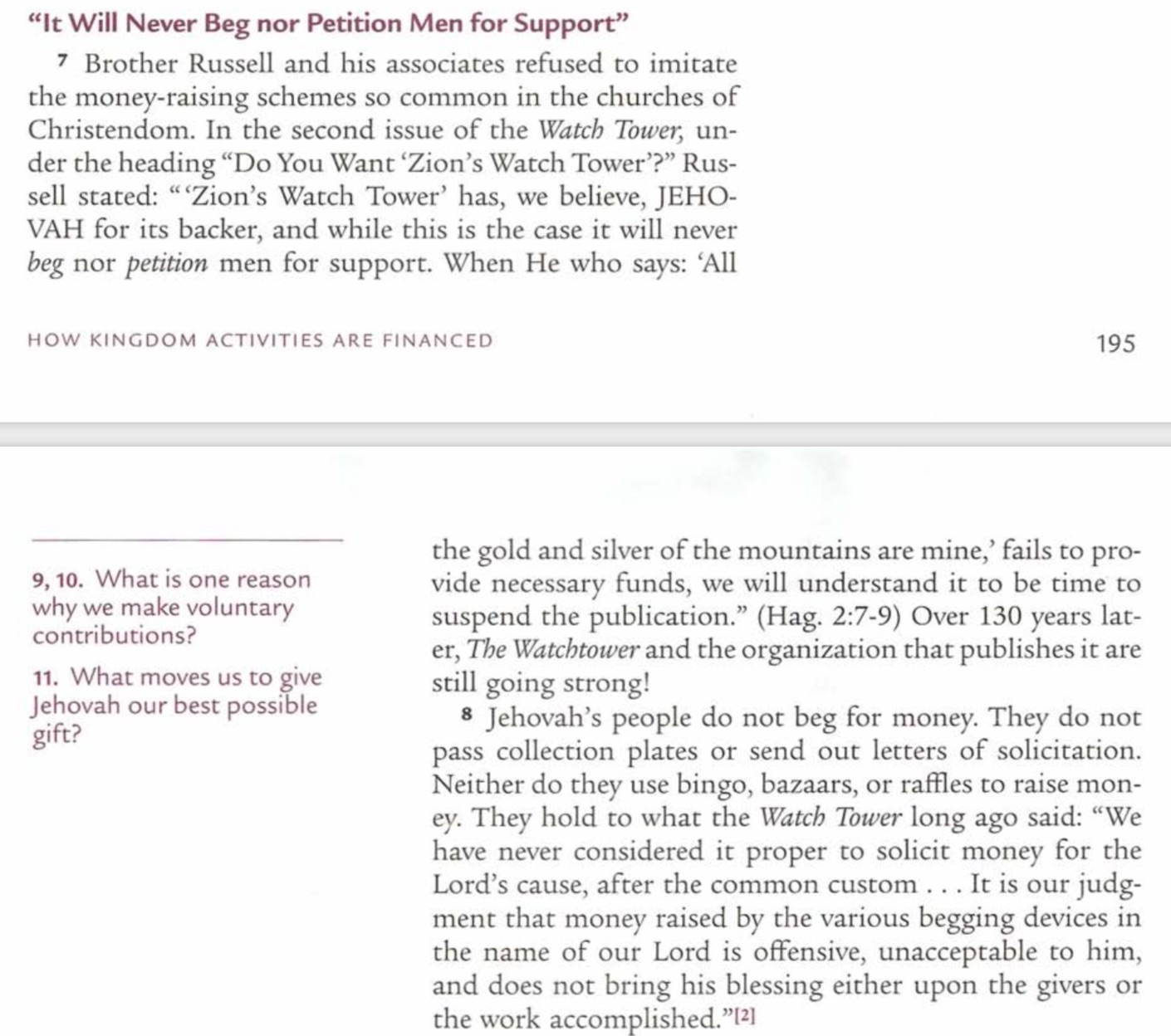
God’s Kingdom Rules (2014) pp.195-196
"How Is Our Worldwide Work Financed? ... We do not tithe, charge dues, or take up collections. Although the costs of supporting our evangelizing work are high, we do not solicit money. Over a century ago, the second issue of the Watchtower magazine stated that we believe we have Jehovah as our backer and that we “will never beg nor petition men for support”—and we never have! —Matthew 10:8. Our activities are supported by voluntary donations." Jehovah’s Will (2014) p.27
Some Kingdom Halls proudly proclaim that collections are not taken, such as in this 2016 photo.
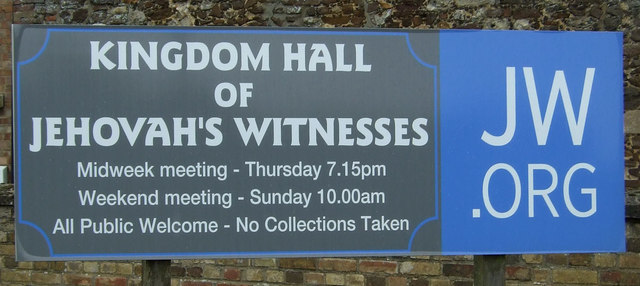
Attribution: JThomas under Creative Commons Licence.
Watchtower is highly critical of Christendom's lust for money and money scamming collection procedures.
"IN Christendom today there seems to be a lack of cheerful giving. ... What of church-sponsored bingo games and raffles? What about the popular money envelopes that call not only for the date of gift but the name of the giver and the amount enclosed? What about passing the collection plate? What about the increasing tendency to discourage small gifts by embarrassing one into giving larger amounts, perhaps more than one can afford? "The priest in a small French village," reports the Readers Digest of February, 1963, "has increased his Sunday collections by using a butterfly net as a collection box. Coins fall through the net. Only bills are large enough to be accepted."" Watchtower 1963 May 1 p.277
Watchtower may not have been as conspicuous in requests for donations as some religious organisations in the past, but its methods have become more obvious since the turn of the century. This article highlights whether Watchtower is any less reprehensible than other Religions in how it has accumulated wealth, and whether it can still claim it does not solicit money as Russell originally promised.
Literature Sales
An important distinction Watchtower has is that it was printing and distributing Bible literature at a profit from inception. For this reason, Russell did not need to aggressively solicit donations. Watchtower produced over 1,000 different magazine editions and book titles in less than 150 years. (See List of Jehovah's Witnesses publications on Wikipedia.)
The Bible warns against excessive publishing of books.
(Ecc. 12:12) "To the making of many books there is no end, and much devotion [to them] is wearisome to the flesh."
Watchtower wealth is primarily attributable to its initial roots as a publishing company
Does Bible truth need to be re-interpreted every month, year and decade, or did Watchtower print this multitude of publications because of the profits made through selling them? Watchtower became a multibillion-dollar organization on the back of being a publishing company that has used free labour to produce and sell literature at a profit.
As a publishing company, Watchtower amassed considerable wealth from the sale of literature from the 1800's to the 1990s. There was no need to resort to the same collection efforts typical of other religious groups. This changed in the 1990 with a tax ruling against Jimmy Swaggart. (See the section regarding Jimmy Swaggart in the article Political Involvement) The United States Supreme Court determined despite religious not-for-profit status, Swaggart was liable for tax on the sale of religious material. The sale of Watchtower publications fell under this ruling. Watchtower decided that rather than pay tax on the money it was receiving from the sale of Watchtower literature, it would be better to direct Jehovah's Witnesses to start asking for donations from people who accepted Watchtower journals in the house to house ministry work. This led to a decline in income.
During this same period, the global publishing industry was experiencing a decline in revenue and profits due to the mainstream launch of the internet in 1995. This further exacerbated the revenue declines Watchtower was experiencing from no longer being able to sell its books and magazines.
Watchtower did not need to pass a collection plate whilst it was making money from selling books. When this income stream started to dry up, Watchtower was forced to look to other sources of income, and in the twenty-first century there has been a noticeable shift in two areas, more open requests for donations and changes in the ownership of Kingdom Halls.
Not For Profit
It is important to understand what it means for the Watch Tower Bible and Tract Society and its affiliated corporations to be classified as not-for-profit, as the term blindsides many people unversed in finance to mistakenly think a "not-for-profit" organization does not make a profit. This is not the case at all.
When I was working at Bethel Australia in the early 1990's, I found out that each Watchtower magazine cost on average about 21 cents to print, during a time when they were being sold for AUD 40 cents. When I told a friend about the profit margin, he was shocked because "Watchtower is a non-profit organisation." This classification does not prevent Watchtower from making a profit on the sale of literature.
"Not-for-profit" organisations can make tremendous profits, as Watchtower has done. The term simply means that under the rules of its incorporation, the profits cannot be distributed to shareholders. Huge wealth can be accumulated as long as it is kept within the organization. In the event of a not-for-profit winding up, any excess capital is to be distributed to other charities. Watchtower's Amended Certificate of Incorporation includes such a clause.
"NINTH: Upon winding up and dissolution of the corporation, after paying or adequately providing for the debts and obligations of the corporation, the remaining assets shall be transferred to the Watch Tower Bible and Tract Society of Pennsylvania. If the Watch Tower Bible and Tract Society of Pennsylvania is not then in existence and a corporation exempt from federal income tax under section 501(c)(3) of the Internal Revenue Code of 1986, or the corresponding section of any future federal tax code, then the remaining assets shall be distributed to any organization designated by the Governing Body of Jehovah's Witnesses that is organized and operated exclusively for religious, educational, and/or charitable purposes and is a corporation exempt from federal income tax under section 501(c)(3) of the Internal Revenue Code of 1986, or the corresponding section of any future federal tax code." (See Exhibit D on page 27 of QCSTelecom 22 Oct 2013.
Not-for-profit does not prevent a company becoming incredibly wealthy or using its wealth to provide lavish lifestyles to it leadership. 1
Consider Rutherford's leadership of Watchtower. During the Great Depression, with unemployment in the United States of America at over 20% and followers struggling to afford basic food and accommodation, Rutherford owned a luxury Bugatti and a winter house in California, referred to as Beth Sarim.
Not-for-profit status carries the significant benefit of being exempt from paying a range of taxes. Watchtower confirmed this in a letter to the New Your State Public Service Commission, Petition to Transfer Ownership of QCSTelecom, Inc. 22 Oct 2013, a 34 page filing requesting the tranfer of a follower's telecommunications company into its own name. The document states:
"Watchtower Bible and Tract Society of New York, Inc., is a New York not-for-profit corporation incorporated on March 4, 1909, and recognized as exempt from federal income tax under section 501(c)(3) of the Internal Revenue Code of 1986."
Financial Donations
In the 2022 morning worship video Anthony Morris: Jehovah Loves a Cheerful Giver (Ezra 8:34) jwb-082-7.v Morris claims not to solicit money, criticises Christendom for doing so, and then coercively says we all need to donate money for "Jehovah to love us."
"we have never considered it proper to solicit money" but then goes on to claim this does not mean "we cannot talk about money. ... we don't beg for money, but nevertheless we have to talk about it ... For God loves a cheerful giver - so there we have it, we are happy to give to Jehovah. ... We never come across like putting people kind of get them even begrudgingly give just so we get money. That is not this organization. Of course Christendom are experts at begging for money. ... One translation put it nicely, "God loves people who love to give." And that's true. So we want Jehovah to love us. So this money we might have what ever amounts depending on our own personal circumstances, we're happy to give to kingdom interests. ... Jehovah doesn't approve coming empty-handed. ... Money meets a response in all things and we have to take that into account, even if we're in the poor range."
Similarly, the 2022 video Gajus Glockentin: ‘Make Friends by Means of Unrighteous Riches’ (Luke 16:9) starts by saying:
"The text reminds us of using our financial means to make friends with Jehovah and Jesus. And even though Jehovah owns everything, seeing us giving and making sacrifices makes him happy."
Watchtower criticises Churches for petitioning donations whilst doing exactly that. Requests for donations has risen dramatically since 2010. Added to the increasing requests for donations appearing in the Watchtower, highlighted in the graph below, are donation requests frequently appearing in jw.org videos.
There may not be a collection plate physically passed to members, but contribution boxes have stood in the corners of kingdom halls for decades.
"A collection plate is never passed. Rather, there is a box in a fixed location for any who wish to make a contribution." Watchtower 2010 May 15 p.31
Towards the end of every year, a Watchtower article appears to motivate Jehovah's Witness donations by claiming contributions "honour God".
"In addition to our labor of love, we can honour God by way of our voluntary contributions. They are used to further the worldwide preaching work, which includes supporting missionaries and other special full-time servants. In addition, the preparation and translation of literature and videos, the assistance with disaster relief efforts, and the construction of new Kingdom Halls are all cared for by our voluntary contributions. We can be assured that "the generous person will be blessed." Moreover, when we give our valuable things to Jehovah we honor him." Watchtower 2017 Nov Study Ed p.18
The article is followed with instructions outlining recommended ways in which to donate. This includes cash, jewellery, other valuable personal property, insurance policies, bank accounts, stocks and bonds, real estate, gift annuities, wills and trusts.
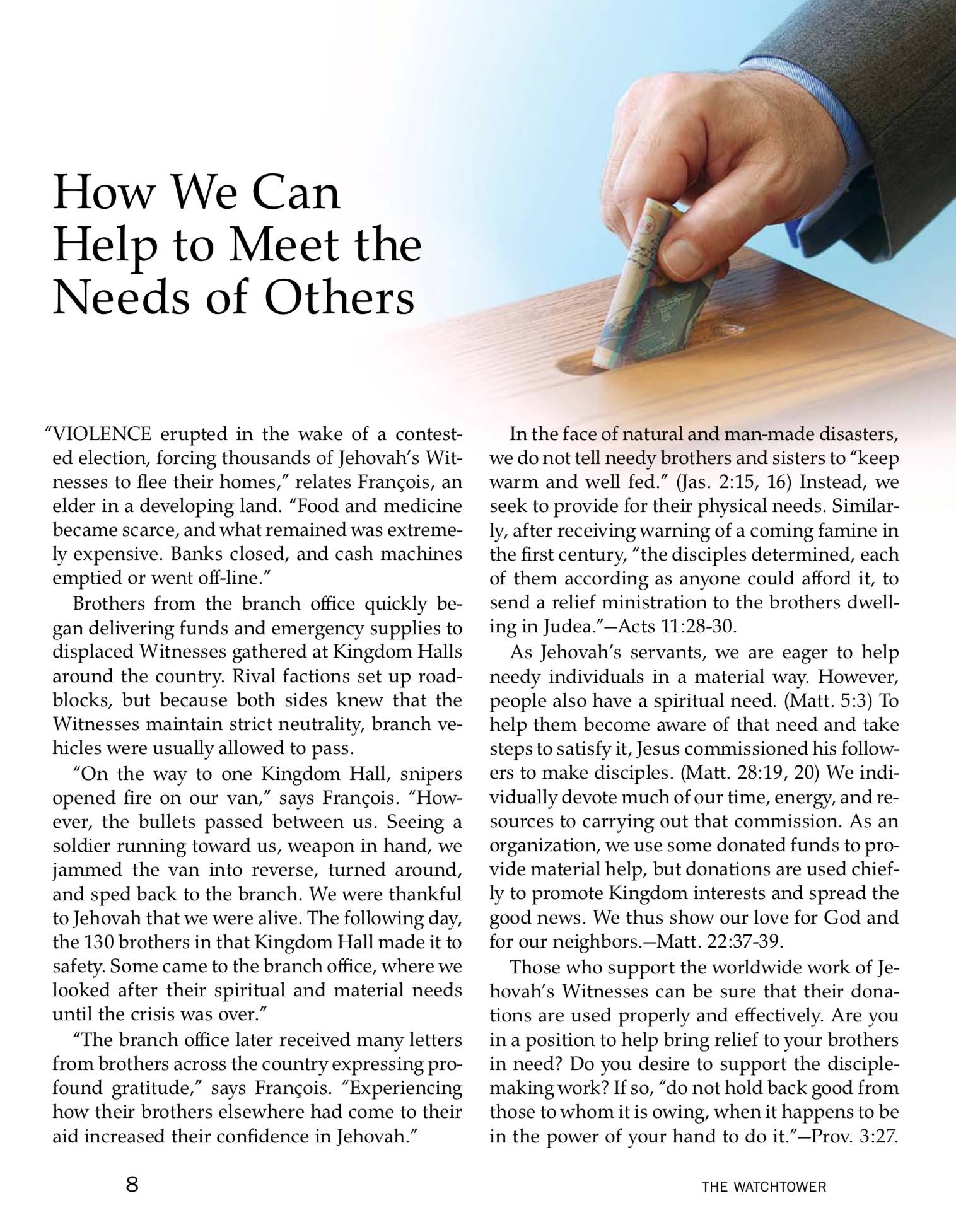
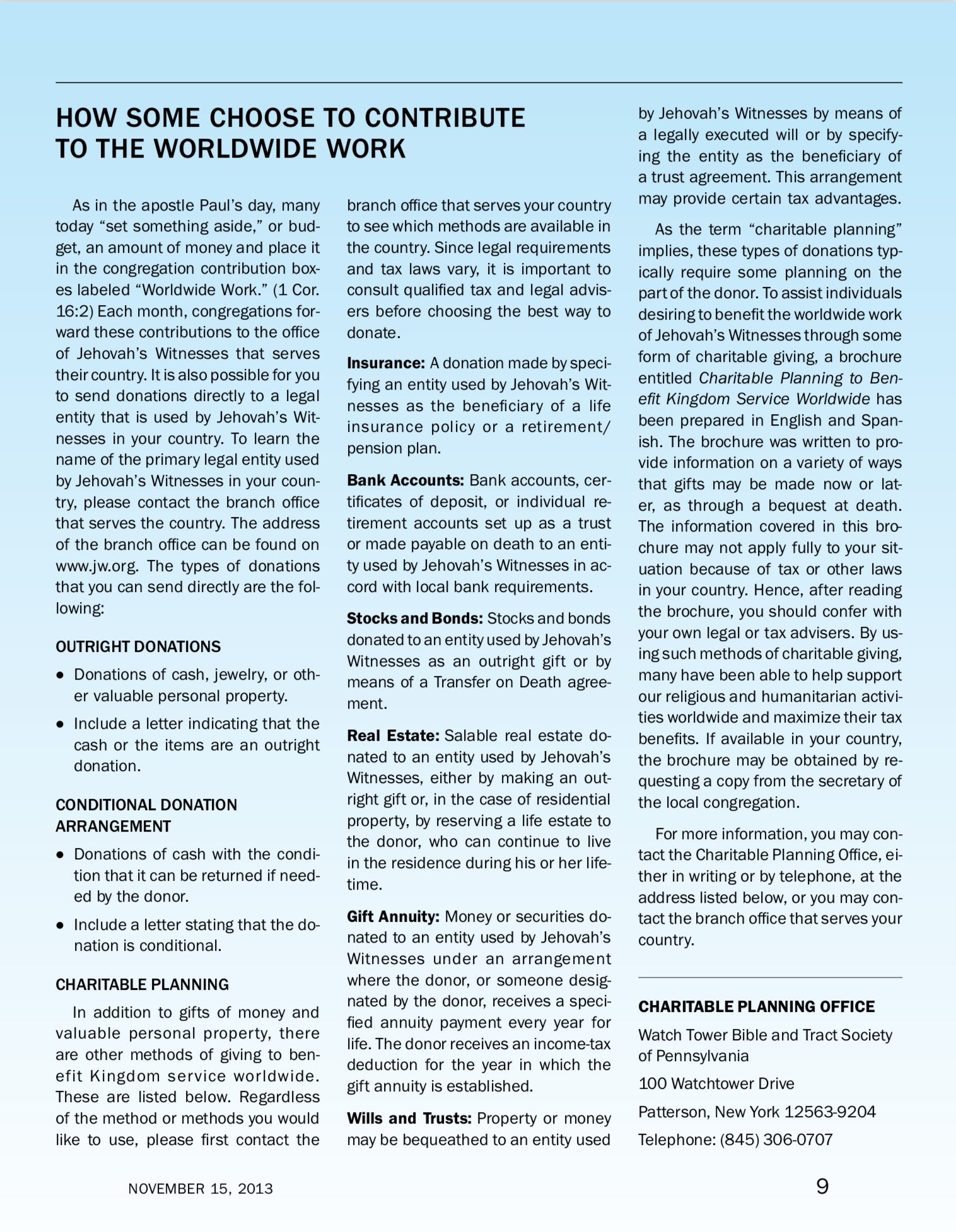
Watchtower 2013 Nov pp.8-9
Similar information now appears on the official Watchtower website under the Frequently Asked Questions article "How is the Work of Jehovah's Witnesses Financed?"
Kingdom Ministry articles detail how to include Watchtower as a beneficiary of a will or trust.
Kingdom Ministry 2012 Jun 1 p.2
In the November 2023 video "Thank You for ‘Setting Something Aside’", a couple comments;
"So we planned, we calculated our cost, analysed the situation, we prayed on the subject, and then we saw the importance of making a will. Jehovah gave us everything, so I think we're just returning what Jehovah gave us. I have come to realize that, in general, contributions are not a pocket condition but a heart condition." mwbv.202311-1.v
Since some Jehovah's Witness couples choose not to have children on the expectation of Armageddon being soon, Watchtower is a logical choice to leave their estate to. Other Witnesses have cut disfellowshipped children from their will and may leave the money to Watchtower instead. For many years my father would spend a week in the Australian Bethel Branch auditing the financial records, during which time my mother was assigned to sell items such as jewellery that had been received from deceased Jehovah's Witnesses.
Watchtower's requests for donations sound like what comes out of the mouths of televangelists, claiming donations will lead to happiness and blessings.
""Honor Jehovah with your valuable things." Our "valuable things" include our time, our talents, our strength, and our material assets. When we use such resources to advance true worship we are giving Jehovah a gift, and doing so brings us great happiness. When it comes to our material resources, what will help us not to overlook giving our gift to Jehovah?" Watchtower 2019 Nov p.32
The Watchtower (Study) 2017 Jul p.9 article "Seeking Riches That Are True" starts with the question, "How can material possessions be used to strengthen our friendship with God?" "this is just part of the priceless inheritance for those who make friends in heaven"
"Honor Jehovah With Your Valuable Things" is a song released in 2019 that appears on jw.org under the heading Original Songs.
"What more can I do to give honor to you,
Than to give you my valuable things?
... No matter what life brings
I'll honor you with my valuable things."
It is accompanied by a motivational video showing images of Jehovah's Witnesses putting money into the contribution box, studying Watchtower publications, preaching, considering the "Application for Temporary Volunteer Program," filling in a field service report slip, donating online and cleaning the Kingdom Hall.
It is manipulative to say donations are a gift to Jehovah when Jehovah needs no money, and the money is going to the bank account of a corporation.
Emotional Coercion
Watchtower attempts to emotionally coerce followers by promising donating "your valuable things" will lead to abundant blessings.
""HONOR Jehovah with your valuable things and with the firstfruits of all your produce." Locked within these inspired words of wisdom, penned some 2,600 years ago, is the key to experiencing Jehovah's blessings in abundance, for the writer goes on to point out: "Then your stores of supply will be filled with plenty; and with new wine your own press vats will overflow."-Proverbs 3:9, 10."
...
While material prosperity in itself does not lead to spiritual prosperity, generously using our valuable things-our time, our strength, and our material resources-to honor Jehovah brings rich blessings." Watchtower 1997 Dec 1 p.26
Bible examples are used to coerce followers, such as referencing the story of the widow's mite from Mark 12:41–44 and Luke 21:1–4.
"And there was likely little she could do to improve her financial situation. Yet, she voluntarily contributed those "two small coins," which were "all the means of living she had." That faithful woman demonstrated wholehearted trust in Jehovah, knowing that if she put spiritual things first, he would provide for her physical needs." Watchtower 2017 Jan p.11
"Her giving attitude must have brought her happiness because, as Jesus said, "there is more happiness in giving than there is in receiving." (Acts 20:35) With that truth in mind, how might you "practice giving" and experience happiness as a result?" Watchtower 2009 Jul 15 pp.29-30
Another example is likening the Israelites funding the tabernacle to "financially supporting Kingdom Halls, Assembly Halls, remote translation offices, and Bethel complexes".
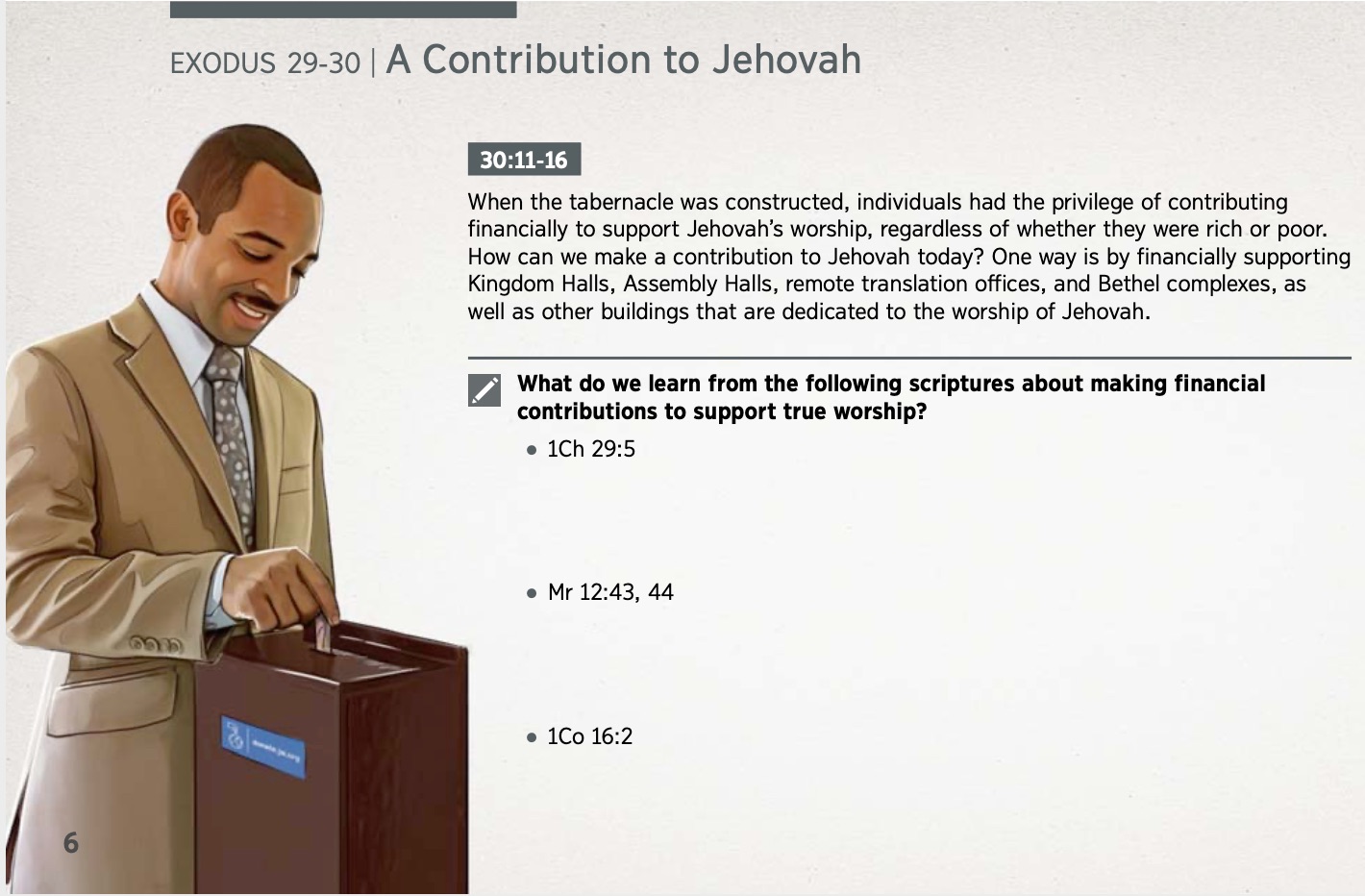
Image Attribution: Life and Ministry Meeting Workbook 2020 Sep p.6
The Watchtower 2023 article "You Can Remain Confident During Uncertain Times" uses people's fear of the future as an unlikely segue into the importance of contributing materially. It makes up a story about a fictitious group of Jews, (shown by saying it was "likely"), who didn't return to Jerusalem due to "old age, serious illness, or family obligations." This imaginary group of disenfranchised individuals, in the demographics most likely to be struggling financially, are said to have "willingly supported the returnees by contributing materially." Apparently, Jehovah never forgets those that earnestly donate generous amounts of money, which should alleviate any fear of the future for those that donate.
"We can also learn a valuable lesson from the Jews who were not able to return to Jerusalem. Some of them were likely limited in what they could do because of old age, serious illness, or family obligations. Even so, they willingly supported the returnees by contributing materially. (Ezra 1:5, 6) It seems that some 19 years after the arrival of the first group of returnees in Jerusalem, those remaining in Babylon were still sending voluntary gifts to Jerusalem.-Zech. 6:10.
Even if we feel limited in what we can do in God's service, we can rest assured that Jehovah appreciates our sincere efforts to please him. How do we know? In Zechariah's day, Jehovah asked his prophet to make a crown out of the gold and the silver sent by the exiles in Babylon. (Zech. 6:11) This "grand crown" would serve as a "reminder" of their generous contributions. (Zech. 6:14, ftns.) We can be confident that Jehovah will never forget our earnest efforts to serve him during uncertain times." Watchtower 2023 Nov (Study Ed) p.19
To Cover Expenses
At Assemblies and Conventions there is always a talk requesting donations to cover running costs. Contribution boxes and card terminals are in abundance. An announcement on the first day encourages people to donate by highlighting a large shortfall between expenses and donations collected, knowing full well that the majority of donations are made on the Sunday afternoon. A lack of transparency regarding the real costs means total donations collected usually exceeds costs, with the excess being sent to Watchtower headquarters.
Donations are specified into groups. Jehovah's Witnesses are expected to donate to cover the cost of running their local Kingdom Hall, as well as pledge as a congregation an amount to the "worldwide work." Contributions boxes may be even labelled as such. For instance, for the 2017 Annual meeting, an Elder's letter specified:
- "Please place temporary labels on the contribution boxes so that all boxes are clearly labeled "Worldwide Work."
- The elders may estimate expenses that were incurred during the use of the Kingdom Hall for the annual meeting and deduct the total from the contributions received. The expenses may include utilities and supplies, but not the purchase or rental of audio/video equipment." (10/2/17-E Letter to Elders in the United States Re: Contributions Received at the 2017 Annual Meeting
In some congregations, Elders ask followers to pledge a one-time or ongoing donation, usually when budgeting for building a new Kingdom Hall. This effectively pressures followers into a commitment, even when done as an anonymous survey.
Watchtower is large enough to self-insure through the Global Assistance Arrangement (GAA) and requests the congregation donate additional money designated for the GAA.
"The GAA is designed to prevent and pay for losses resulting from "unexpected events" that could affect the organization. (Eccl. 9:11) It cares for incidents at Kingdom Halls, Assembly Halls, and branch facilities or wherever there is damage that is the result of natural disaster, fire, moisture, or vandalism. The arrangement is based on the principle found at 2 Corinthians 8:14, where we find the apostle Paul's encouragement that "an equalizing" take place with regard to financial support." Britain Branch Letter TO ALL CONGREGATIONS September 21, 2016
The letter was read to all British congregations, outlining that the GAA required an average donation from each publisher of £3 to cover its expected annual cost. An additional page was included for only the elders. Here it suggested they multiple the number of publishers by £3 to arrive at an amount to put to the congregation as a resolution as a donation, even providing the following wording for the resolution.

Britain Branch Letter TO ALL CONGREGATIONS PS to bodies of elders September 21, 2016
Even in times of crisis, Watchtower pushes its members for money. During the period of time that many countries enforced isolation due to Covid-19, leading to loss of jobs and income, Watchtower released a announcement reminding members that they can continue to donate online, knowing that "Jehovah notices even the smallest of donations" and "will bless your efforts to show appreciation..."
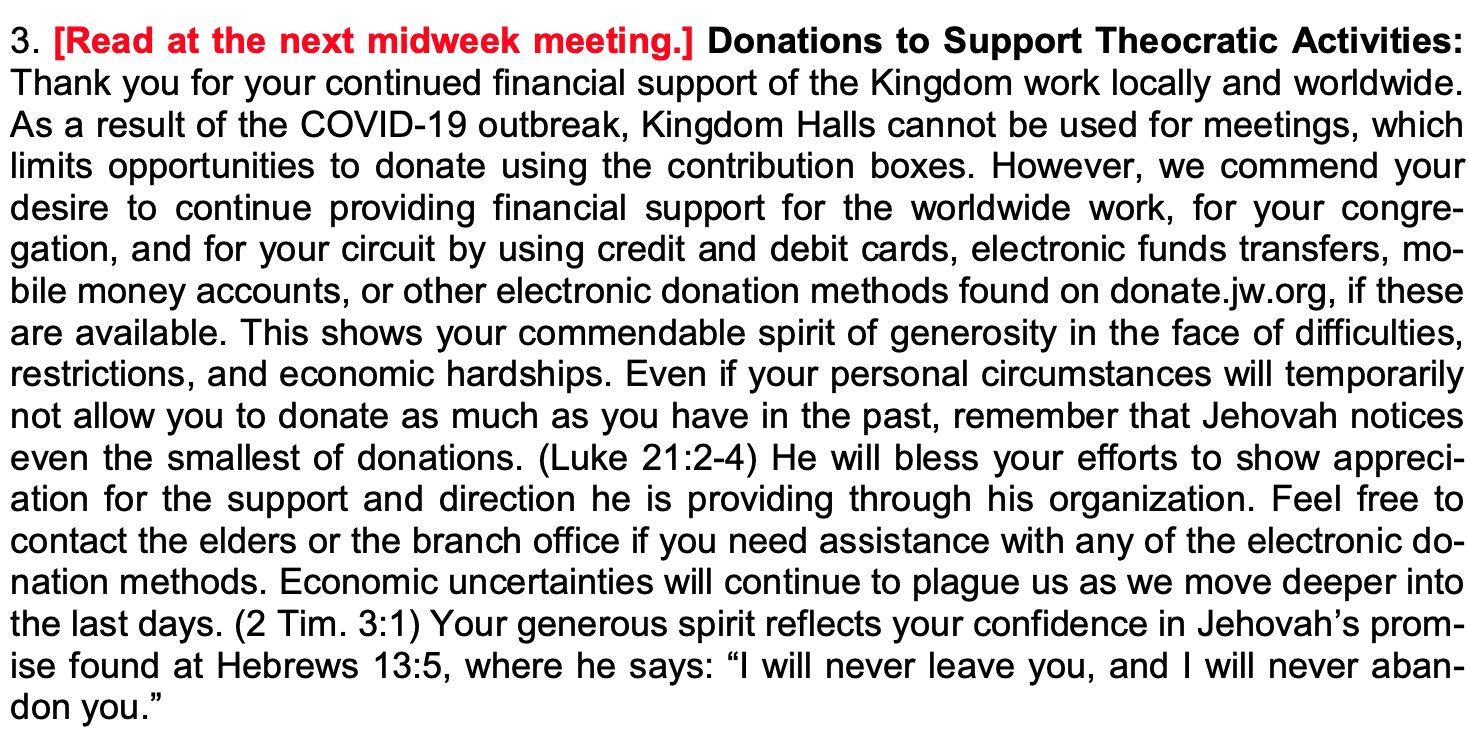
Announcements 2020 Apr 1 (4/1/20-E Bi)
Announcement July 1, 2022 introduced an "additional donation type ... the "World Headquarters Audio/Video Construction" donation type", along with a sample congregation report showing a line item for World Headquarters Construction.
Motivational commentary explained the money was required to support the exciting "rapid growth."
"It is truly exciting to see the the rapid growth in Jehovah's organization is creating a need for expanded theocratic facilities to support audio/video production." (7/1/22-E_Us)
Rapid growth!? In the 5 years prior to 2022, growth was less than the global population growth rate, and there was virtually no growth for 3 years before this 2022 announcement. Not only have Watchtower leaders begun actively petitioning donations, they coerce followers with lies.
Year/Average Publishers
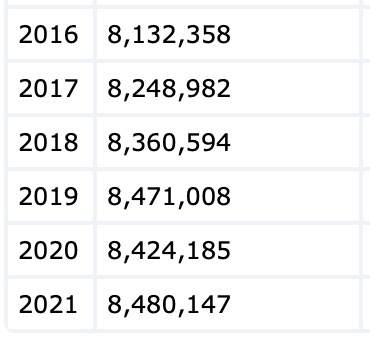
Electronic Progress
It was a shock to first learn of credit card terminals appearing at halls and conventions to cater for donations.
This is a long way since Watchtower criticized card donations at a Catholic Church in 1973.
"Some religious organizations are going to new ends to acquire money. The Coronation of the Blessed Virgin Mary Catholic Church in Buffalo, New York, now accepts credit cards, not just cash donations. One finance committee member says: "A church can't survive on 50-cent [cash] donations." Credit-card donations are up to $30. Admission is now being charged visitors to London's thirteenth-century Salisbury Cathedral. A London Observer article calls this "a last-ditch attempt to find a way of meeting the desperate need for funds."" Awake! 1973 Dec 8 p.29
In 2003, "Watching the World" was still spotlighting Churches for accepting plastic card donations.
"Plastic Card Donations "A growing number of Canadian churches" are adopting modern banking practices, introducing bank cards and credit cards as convenient ways for parishioners to make collection-plate donations," says the Vancouver Sun newspaper. Debit machines have been placed in church halls along with "donation envelopes with options for automatic account withdrawal and credit card payment." Individuals simply swipe their card, key in the amount they wish to donate, and then put a copy of the receipt in the collection plate. As one pastor stated: "cashless society is where society is going. Why not the church?" A church treasurer joked: "You get air-miles on your card, plus you go to heaven for donations. Just think of it as double reward points."" Awake! 2003 Aug 8 p.29
Yet, within a decade, Watchtower was promoting the benefits of plastic card donations.
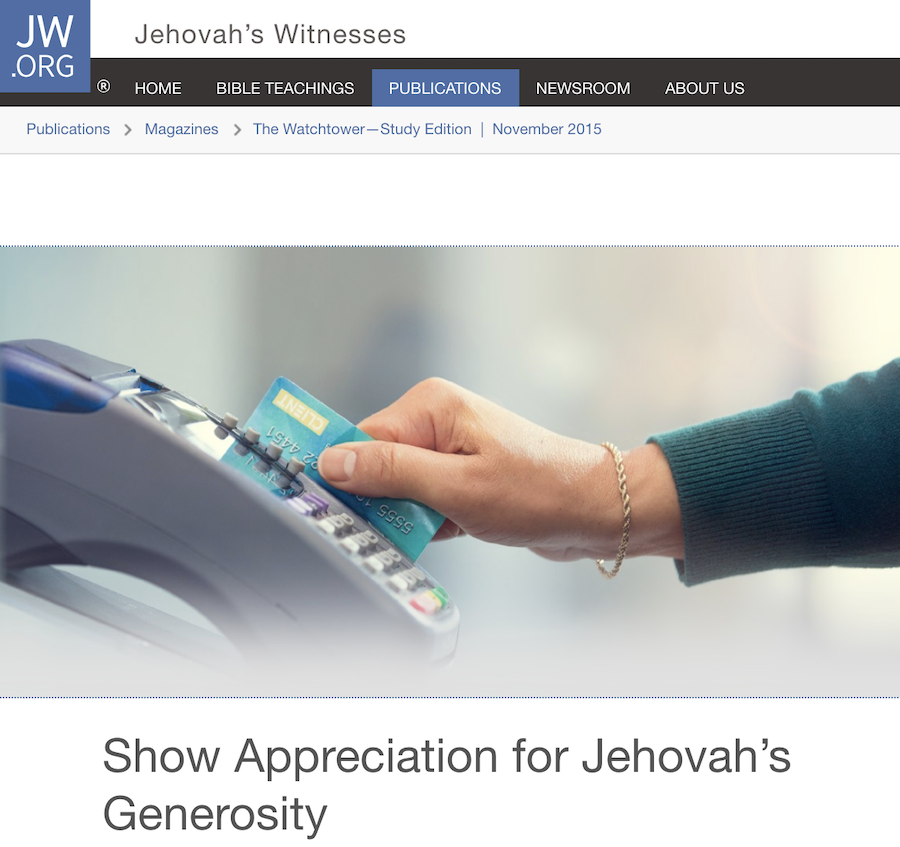
Image Attribution: Watchtower 2015 Nov
In 2019, the back page of the Watchtower 2019 Nov p.32 included a link and instructions for making either one-off or recurring online donations at donate.jw.org.
Setting up a recurring online donation loses the heartfelt spontaneity Watchtower spoke proudly about in the past.
"The emphasis in all giving among the Witnesses is that it must be voluntary and spontaneous, from the heart." Watchtower 1971 Aug 15 p.506
Elders are provided with a log in to jw.org that allows them to send congregation donations online, as outlined in the April 10 2020 Announcement.
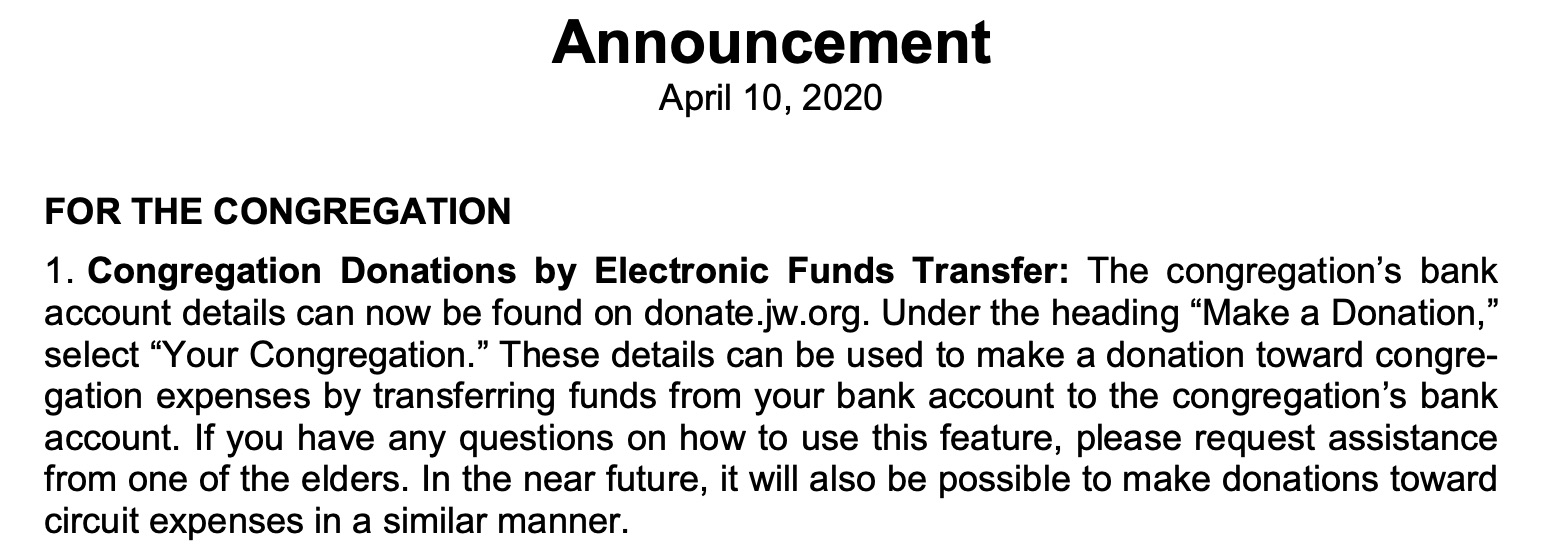
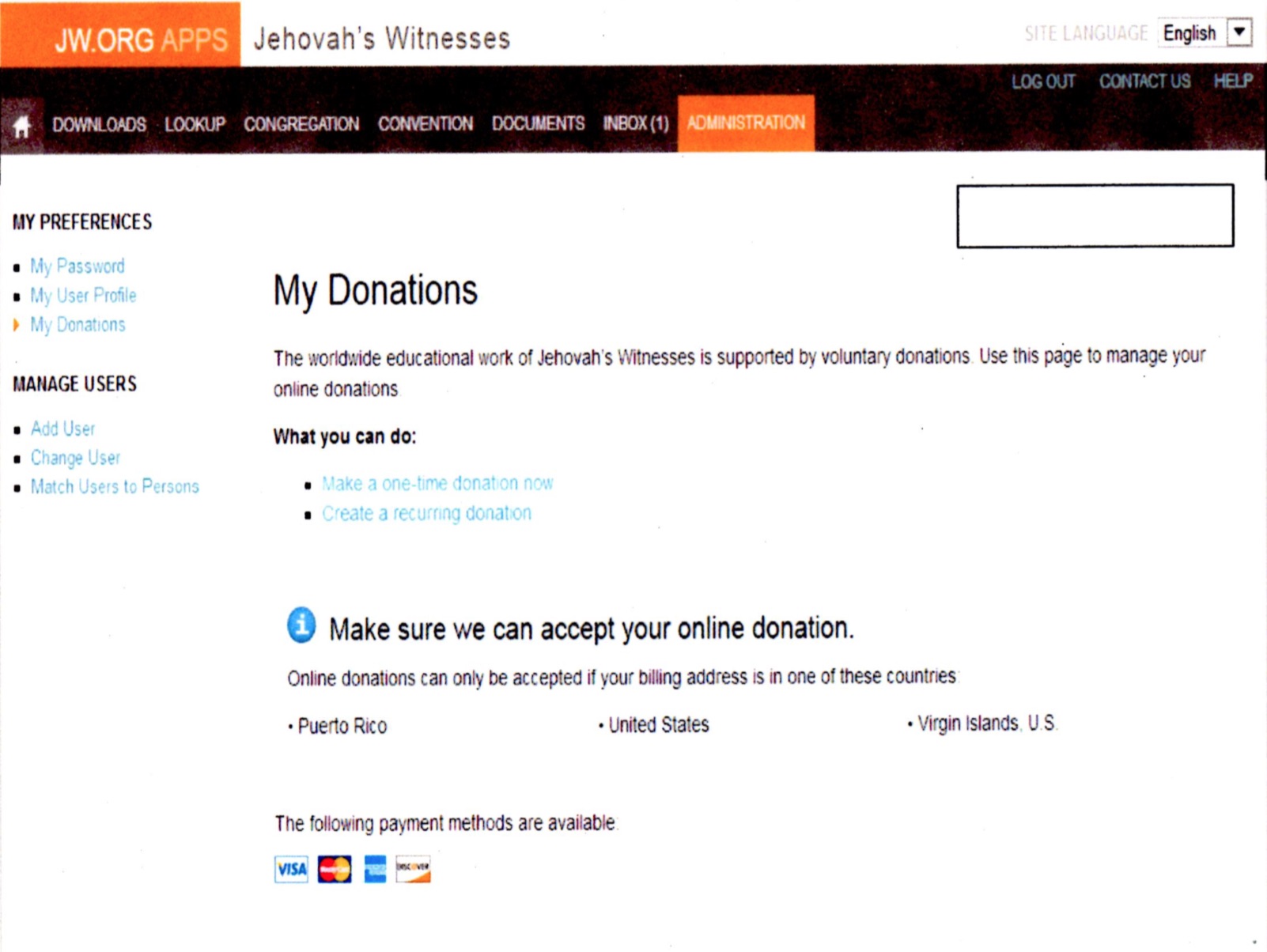
Children
Watchtower requests for donations include indoctrination of Jehovah's Witness children, using guilt to encourage they too donate. The 2015 children's video Become Jehovah's Friend - Be Generous indicated there is more happiness in donating money to the Kingdom Hall than using it to purchase an ice-cream.
The Elders Letter Britain 2015 Dec 17 outlining methods for donating money praises two children that donated money intended for a circus trip.
Donation of Labour
Jehovah's Witnesses donate large amounts of time to the running and growth of organization. This has long been identified as being more valuable than money.
"Giving ourselves to Him in service as a publisher of his kingdom is more valuable and more mighty in results than any mere money gift to him." Watchtower 1948 Feb 15 p.59
Jehovah's Witnesses are not paid for work they do for the religion, whether it be public speaking assignments, preaching or maintenance of the Kingdom Hall. Elders, the equivalent of a priest or clergy class, donate many hours each week giving talks and shepherding the flock without pay. Only a small group of people - Circuit Overseers, Missionaries and Bethelites - receive a small expense allowance.
"We never use donations to enrich any individual. We have no paid elders or clergy, and Jehovah's Witnesses are not paid to go from door to door. Those who serve at our branch offices and at our world headquarters, including those making up the Governing Body, are unsalaried members of a religious order." How do Jehovah's Witnesses Use Donations? 26 Jan 2021
All Jehovah's Witnesses are expected to donate time to the running and growth of organization; in fact, reporting a minimum of 1 hour in the preaching work each month is required to be counted as one of Jehovah's Witnesses in the annual report, with the average expectation being 10 hours preaching every month. (Kingdom Ministry 2002 Oct p.8 allowed for the elderly or seriously ill to be counted as a publisher when reporting only 15 minutes preaching in a month. This provision was extended to all Jehovah's Witnesses during Covid-19 in the Direction Related to COVID-19 Pandemic for Bodies of Elders, December 9, 2020.)
Watchtower articles encourage followers to reach out and do more for the organization than the minimum expectation of 10 hours preaching per month, such as pioneering, assisting in the construction of Kingdom Halls, or applying to work at Bethel.
"Today, you also have many opportunities to volunteer your time, resources, and skills to help your brothers and sisters. And you will feel great joy and receive many blessings from making yourself available. ... Can you serve in a field where the need is greater, perhaps as a pioneer? ... Would you be willing to serve at Bethel or assist in the construction of a theocratic facility, either as a temporary worker or as a commuter? There is a constant need for individuals who can serve Jehovah wherever they are assigned and at whatever task they are given to do." Watchtower 2018 Aug pp.25,27
Bethel
Bethel is the name given to Watchtower's offices, with the Global headquarters located in New York, along with 87 regional offices in 2018. The 2020 Grand Totals reported 20,994 people staffed the branch facilities, with the majority of Bethelites living and working full-time at Bethel. These offices look after producing literature, legal matters, congregation matters, hospital liaison, travelling overseers, construction, conventions and disaster relief.
Full-time staff at branch offices are required to sign a "Vow of Poverty." Signing this commits to working full-time as a volunteer and hence not be covered by local laws requiring minimum wage requirements. Meals, dormitory style lodging and a small expense allowance are provided, as agreed to at clauses 7 and 8:
"7. To accept such provisions for members of the Order (be they meals, lodging, expense reimbursements, or others) as are made in the country where I serve. regardless of the level of my responsibility or the value of my services;
8. To be content and satisfied with the modest support that I receive from the Order as long as I am privileged to serve in the Order and not to expect any further remuneration should I choose to leave the Order or should the Order determine that I no longer qualify to serve in the Order." VOW OF OBEDIENCE AND POVERTY to the ORDER OF SPECIAL FULL-TIME SERVANTS OF JEHOVAH'S WITNESSES.
When I was at the Australian Bethel in the 1990's, the average Australian weekly wage was around $AUD800 per week. The weekly allowance Watchtower provided was about $20, only 5% of an average wage.
Watchtower discourages Jehovah's Witnesses from pursuing advanced education, yet requests those with professional skills to volunteer their skills at Bethel, such as the 2nd Oct 2020 US Elder's Letter request for software developers.

10/02/20-E_Us
Pioneering
Pioneers make a commitment to volunteer a set number of hours each month to preaching, either as a Regular or Auxiliary Pioneer. At one point, Regular Pioneers committed to preaching for 100 hours a month. This was reduced to 83.3 hours (1,000 hours per year) and at the time of writing is 70 hours a month - 16 hours a week. 16 hours equates to 40% of a 37.5 hour full time job. In 2020, there were almost 1.3 million Regular Pioneers and 338,568 Auxiliary Pioneers. The hours spent preaching are basically free labour that is devoted to growing the organization.
A Watchtower article encouraging pioneering likens the preaching work to the widow from Mark 12 donating all she had, a fitting comparison considering Watchtower encourages prioritizing preaching regardless of how much followers are struggling financially.
"Jesus' gaze became fixed on one particular woman. Ordinary eyes may not have observed anything remarkable about her or her gift. But Jesus, who could know the hearts of others, knew that she was "a poor widow." He also knew the exact amount of her gift-"two small coins, which have very little value."-Mark 12:41, 42. Jesus called his disciples to him, for he wanted them to see firsthand the lesson he was about to teach. She "dropped in more than all those dropping money into the treasury chests" said Jesus. In his estimation she put in more than all the others combined. She gave "all of what she had"-her last bit of money. By doing so, she placed herself in Jehovah's caring hands."" Watchtower 1997 Oct 15 pp.17-18
Construction
Rather than meet in fancy Church buildings, Jehovah's Witnesses worship in Kingdom Halls. As the name implies, these are styled more like a community hall. When a new Kingdom Hall is needed, Jehovah's Witnesses donate towards the expenses and may also volunteer to assist in building the hall. Whilst an existing building may be purchased and remodelled, it is common to build from scratch. In the 1980's, a new process was developed where Jehovah's Witnesses would work together to build a new hall in just a few days, referred to as quick-build Kingdom Halls.
"A wonderful new experience for Britain this past year has been the construction of their first two "quick-build" Kingdom Halls. The branch reports: "The first hall, at Northampton, took four days. The second, at Dolgellau, in Wales, was put up in less than two days." 1985 Yearbook of Jehovah's Witnesses p.38
I worked on three quick-build Kingdom Halls in Tasmania. It was remarkable to arrive to a concrete slab on a Saturday morning, work alongside a hundred or so other Jehovah's Witnesses, and by Sunday evening be inside a functional Kingdom Hall, with all brickwork, roofing, electrical, plumbing, painting and carpets completed. Whilst impressive, there was an immense amount of preparation work required prior to that final weekend. My father was in charge of the Hobart Central Hall and I worked with him and other congregation members for months to get everything organized for that weekend.
Image Attribution: Proclaimer's p.320
Forms such as the 2016 Local Design/Construction Volunteer Application DC-50-E 6/16 can be submitted for approval to be on call for local and global construction projects, covering the areas of "Construction/Maintenance, Disaster relief, Engineering/Design, Property investigation/Evaluation."
Humanitarian Disaster Relief
It is common for religious organizations such as Watchtower to be registered as a charity in order to receive associated tax benefits. Donations towards "Our Worldwide Work" are allocated in part to charitable works that fall under as disaster relief or humanitarian activities. Jehovah's Witnesses can be commended for the efficient manner in which they assist members affected by natural disasters.
"Disaster Relief: We provide food, water, and housing for those who have suffered from natural and man-made disasters. This humanitarian work benefits not only "those related to us in the faith" but also non-Witnesses." How do Jehovah's Witnesses Use Donations? 26 Jan 2021
Despite what the above quote says, "non-Witnesses" received minimal assistance. Unlike religious charities that assist people regardless of denomination, Watchtower assistance is directed almost solely towards believers.
The following articles show how Watchtower really feels about providing humanitarian aid to non-Witnesses.
"People may also feel that we should build schools and hospitals as well as perform other charitable works. They are stumbled because we focus our effort on the preaching work, not on solving the world's immediate problems. ... Never should we become distracted by the political and social issues of this world." Watchtower 2021 May p.7
"Like the neighborly Samaritan in Jesus' illustration, we want to help suffering people, including those who are not Witnesses. (Luke 10:33-37) The best way to do so is by sharing the good news with them. "It is important to make clear right away that we are Jehovah's Witnesses and that our primary mission is to help them spiritually, not materially," notes an elder who has helped many refugees. "Otherwise, some may associate with us only for personal advantage."" Watchtower (Study) 2017 May p.7
This is not new, as shown by a 1948 Watchtower quote praising itself for providing spiritual help to the nations, and financial support to followers.
"The relief from spiritual famine that Jehovah's witnessees are pushing in all nations by spreading the life-saving knowledge of Jehovah God and the kingdom of his Christ is of far more importane and value than the material relief being carried on by the political, social, commercial and religious agencies. Surely life eternal in the perfect new world is of more enduring importance and worth than life and temporary comforts in this wicked world. However, Jehovah's witnesses have followed the example of their Christian brethren of the first century and have generously given material things to feed, clothe and house their needy brethren in Europe and the Orient. They have shipped tons upon tons of clothing and food to the faithful ministers of God in various European lands, the Philippine Islands and Japan." Watchtower 1948 Mar 15 pp.89-90
Watchtower considers any preaching related work as a charitable service, admitting as much in legal documentation. For instance, the QCSTelcom transfer application lists Bethelites as being engaged in charitable service.
"Watchtower's institutional facilities at Patterson and Wallkill and proposed institutional facilities at Tuxedo and Warwick collectively accommodate approximately 5,000 persons who live and work on site providing religious and charitable services without charge to the public and supporting over one hundred thousand congregations of Jehovah's Witnesses worldwide ..." (QCSTelecom Application, page 2, 22 Oct 2013.
What is most disturbing, and generally unknown, is that disasters are a money making opportunity for Watchtower, particularly in wealthy countries. Whilst I have no written documentation to support the following, I have had the details confirmed by more than one individual assigned to the disaster relief program. If the Jehovah's Witnesses with a damaged home has insurance coverage, a Watchtower representative request they sign for Watchtower to be the contracted repairer. Watchtower lodges a claim with the insurance company for the standard rebuild cost a contractor would charge, despite Jehovah's Witness volunteers providing the labour at no charge. Watchtower usually does not even reimburse the costs these volunteers incurr travelling to the disaster zone. Whilst many homes were rebuilt after hurricane Katrina in the United States, Jehovah's Witnesses in Haiti were mostly uninsured, and as a result predominantly only kingdom halls were rebuilt after the Haitian earthquakes.
Real Estate
Watchtower's property portfolio is worth billions of dollars, mostly purchased with money from donations and constructed with the free labour of Jehovah's Witnesses.
"Jehovah's people around the world work hard to build Kingdom Halls. Unpaid volunteers design, build, and renovate them. As a result, during the last 15 years, we have built more than 28,000 beautiful Kingdom Halls worldwide, or about 5 Kingdom Halls every day." Watchtower Simplified 2015 Jul 15 p.24
"Today, we too may be asked to make donations for a specific purpose. For example, are there plans to build a new Kingdom Hall that your congregation will use? Or is your current Kingdom Hall being renovated? We may be made aware of financial needs with regard to renovations to our local branch office, a convention we are attending, or assistance to our brothers after a natural disaster. We also donate to support those caring for the work at world headquarters and at branch offices around the earth. Our donations support missionaries, special pioneers, and those in the circuit work. Your congregation also no doubt has a standing resolution to assist financially with the worldwide program of building Assembly Halls and Kingdom Halls, which benefits our brothers throughout the earth." Watchtower Study Jan 2018 p.19
64,501 Kingdom Halls catered to the 115,416 congregations in 2014. (See 2016 Calendar and 2014 Annual Report.) There were 87 branch offices as per the 2018 Yearbook of Jehovah's Witnesses. Whilst some Bethel branches are located in small inner-city buildings, they regularly encompass large areas of land worth millions of dollars, such as the Australian Branch shown in the image below.
Image Attribution: Welcome to the Australasian Branch of Jehovah's Witnesses - fo_s-Au_E
Over $2.7 billion dollars' worth of Watchtower property has been found listed for sale at online real estate websites between 2004 and 2020. Watchtower Property Sales Tracking itemizes each of these properties, with links to their online advertisements. Around $2 billion of this was for Watchtower's Brooklyn headquarter, with another half a billion dollars relating to Kingdom Halls, Assembly Halls and Branch Offices. This is the value of only around 500 properties that have been found advertised online for sale during a 15 year period, not the value Watchtower's 64,000 properties. Kingdom Halls are being sold in Britain, Australia and USA for around $USD 1 million each and $100,000 in countries with lower property prices, such as Poland. A rough estimate of the total value of Kingdom Halls, based on the assumptions in the table below, is over 15 billion US dollars.
AND THEN there is Watchtower's Headquarter complexes, spread across three areas of upstate New York.
- World Headquarters of Jehovah's Witnesses, Warwick
- Watchtower Farms, Wallkill
- Watchtower Educational Center, Patterson
The Warwick headquarters 60 miles North West of Brooklyn is magnificent, as can be seen in the illustration below.

Warwick Headquarters Image attribution: Ken Bermido
In 2004, printing and shipping operations in the United States were moved to Wallkill, New York - see World Headquarters Relocating - 21 Jan 2021.) In 2016, Watchtower moved it's Branch Committee and Service Department to Wallkill and headquarters to Warwick.
"Here in the United States, members of the Bethel family have been busy moving out of Brooklyn and into the new world headquarters, at Warwick, New York, as well as to other complexes and into the field. Bethelites at a number of other branches around the world are likewise busy with building, remodeling, consolidating, or moving to new locations." 2017 Yearbook of Jehovah's Witnesses p.2
"The expansion of the facilities at Wallkill, New York, was completed on February 1, 2016, allowing for the transfer of the United States Branch Committee, the Service Department, and other United States branch departments to that site. And with work on the new world head- quarters at Warwick coming ... to completion, the Brooklyn Bethel family has under- taken the huge task of moving out of New York City and into the countryside." 2017 Yearbook of Jehovah's Witnesses pp.7,10
For many decades, Watchtower headquarters were located on prime waterfront real-estate in Brooklyn.

Image attribution: Sergio Herrera
Watchtower received over two billion US dollars when selling up it's Brooklyn headquarters. 32 Brooklyn properties that had been used for the headquarters, related departments and staff accommodation were sold between 2004 and 2018.
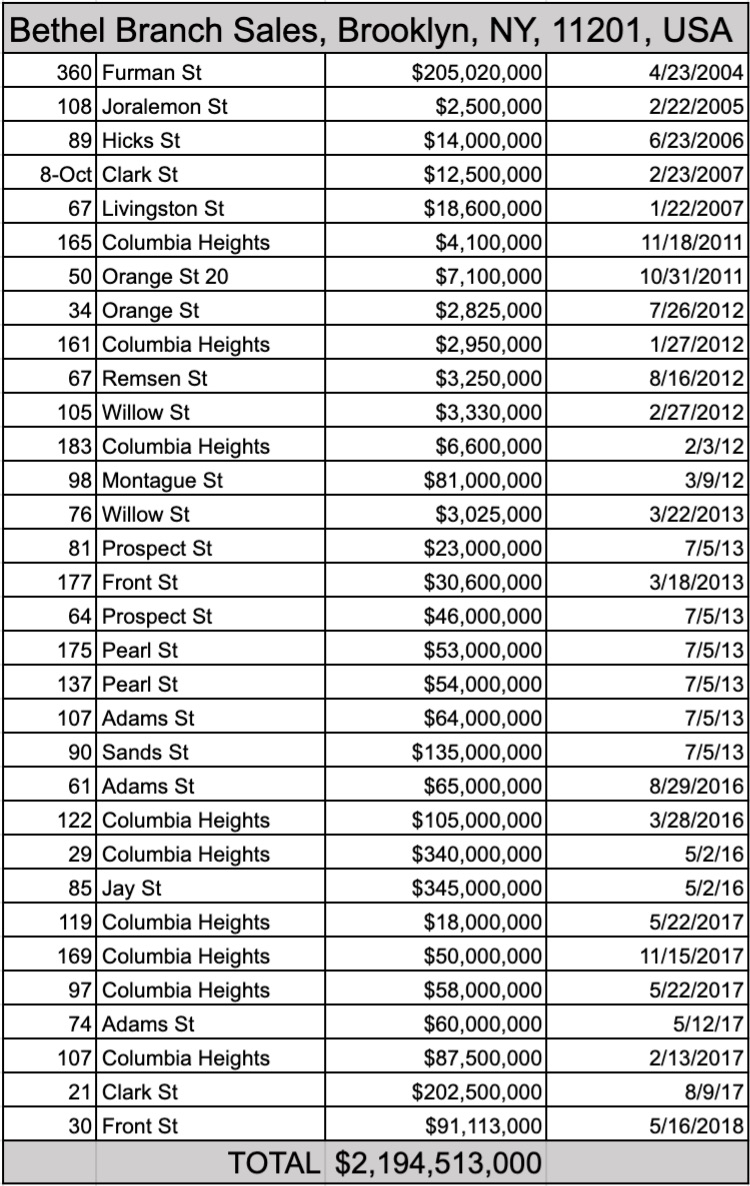
See Brooklyn Realestate Transfers for a PDF compilation of the scanned transfer documents.
Such a significant change for Brooklyn attracted much local media coverage.
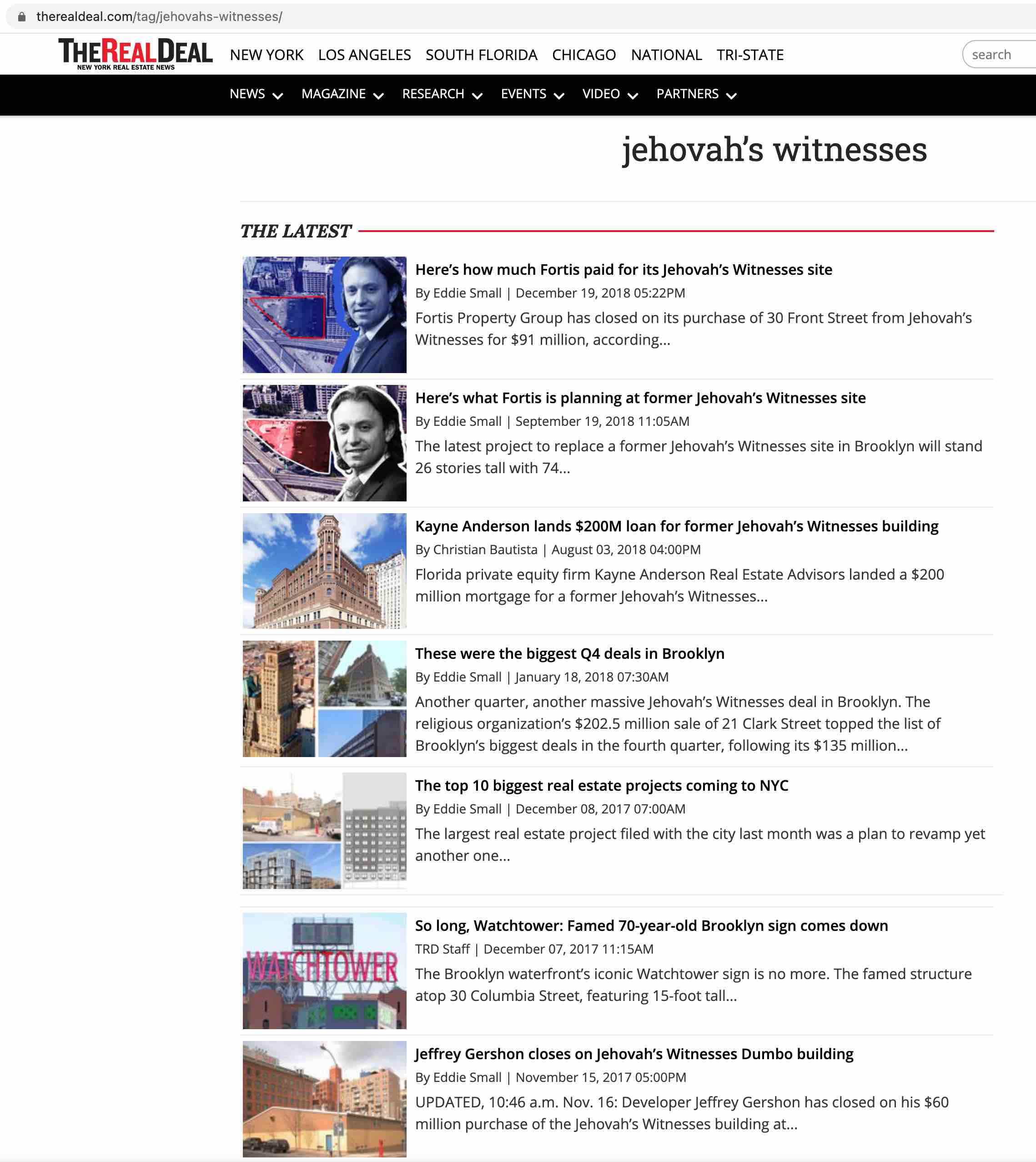
Image attribution: therealdealcom screenshot 21 Jan 2021
Jared Kushner, Donald Trump's son-in-law, was involved in the sale of some of Watchtower's Brooklyn properties.
Using property as a source of wealth emulates the well known MacDonald's formula, whose financial success owes itself to investment in carefully chosen real estate as much as to the food product it sells. (See The real way McDonald's makes their money - it's not their food as of 26 Jan 2021). The latest Kingdom Hall designs even lend themselves to be sold to fast food chains.
Watchtower has two advantages that McDonald's does not. It does not have to pay tax on profit made from selling real estate or annual property tax, and it constructs new buildings with donations and volunteer labour. Crain's New York Business estimates that due to Watchtower's religious related tax status, "Jehovah's Witnesses saved $368 million in real estate taxes over the past 12 years" on it's Brooklyn properties.
For this reason, rather than buy in the best locations and hold as McDonald's tends to do, Watchtower is in a cycle of "flipping" halls at a profit, and then using donations and volunteer labour to build replacement ones.
Investment Schemes
Watchtower describes the commercial world as belonging to Satan.
"The religious, political, and commercial elements of this world-including their information channels-are under the influence of "the god of this system of things," Satan the Devil." Watchtower Study Ed August 2015 Watch Your Associations in These Last Days
"Satan would like nothing better than to have us spend all our time and energy as slaves to his commercial world." Watchtower (Study) 2017 Jul p.10
Despite this, Watchtower has an experienced investment team, utilizing stocks, bonds and trusts as investment vehicles for accumulating wealth.
Watchtower has held shares in Rand, a supplier to the U.S. Department of Defence.

See the SEC filing or PDF copy for the full document.
They have had a registered holding in the H M Riley Trust, which was received from the deceased estate of Henrietta Riley. This trust trades in a wide spread of bonds and shares in companies such as Exxon Mobil, Coca Cola, Proctor & Gamble, Phillip Morris and Cardinal Health.
This trust trades in a wide spread of bonds and shares in companies such as Exxon Mobil, Coca Cola, Proctor & Gamble, Phillip Morris (one of the world's largest cigarette manufacturers) and Cardinal Health (who supply medical equipment including for blood transfusions.)
In 2007, Watchtower had an SEC filing for a $40 million dollar hedge fund through K2 STB Fund Ltd, located in the Cayman Islands. For a full description see watchtowerlies.org. In 2012, the fund was worth over 3.5 million dollars, and provided the Watchtower with tax free income of $752,859, as shown in the Return of Organization Exempt From Income Tax.
Watchtower was an attendee at the Goldman Sachs 2012 Growth Markets Summit, Growth Markets Insights: Shaping Global Investment Themes.
Whilst being critical of the world's political and commercial systems, Watchtower happily benefits financially from them where it can. For instance, a 17 Dec 2015 Elder's Letter in Britain advised Jehovah's Witnesses donating to the organization to advise if they were taxpayers, so that Watchtower could claim an additional 25% from the government.
An indication of Watchtower's corporate greed is the way it pursues money.
Watch Tower Bible & Tract Society of Pennsylvania vs. Fifth Third Bank outlines a case where Watchtower spent five years fighting for a deceased person's bank account containing $99,865. Luther Loy Dietrich originally designated his mother as the beneficiary of his Fifth Third bank accounts. He later changed the beneficiary to Watchtower, but did not lodge a "payable on death" beneficiary form with the bank. Upon Dietrich's death in 2005, Watchtower sent notice to Fifth Third bank for the proceeds of the account, but without the required forms the Bank paid the money to Dietrich's estate, which was distibuted to his relatives. In 2008, Watchtower filed and lost a suit against Fifth Third Bank for negligence and breach of contract. Watchtower appealed and lost again in 2011. Watchtower pursued the case for five years, despite $99,865 being inconsequential to it as a billion-dollar corporation.
Watchtower sought money from The Holocaust Victim Assets Litigation Fund (Swiss Banks) CV-96-4849, which was set up to compensate victims of the Holocaust. In a letter dated 7 Dec 1999, Watchtower applied for compensation payable to Jehovah's Witness Holocaust-era Survivors Fund, Inc., which it incorporated 27 Oct 2000.
Assisting Jehovah's Witness Holocaust survivors may appear commendable, but the primary intention comes to light when reading Watchtower's outline of why it should receive the funds of all eligible Jehovah's Witnesses that had died and "left no heirs."
"Some Witnesses died prematurely and left no heirs to make a claim to the Swiss Bank Settlement Fund. However, the legacy of spiritual resistance that they left behind is of great value in the education of future generations about the importance of standing up for the dignity and value of human life. Representing these individuals, the Watch Tower would be pleased devote any allocated moneys solely to the interests of Holocaust education and the remembrance of the prisoners who bore the purple triangle, according as the court might stipulate." Proposed Plan of Allocation for Jehovah's Witnesses
Changing Procedures
The new century has heralded changes in how Watchtower goes about raising money. With revenue from book sales falling, requests for money have become more open and regular. As discussed above, credit card terminal and directions for online donations are commonplace. The Governing Body now make regular requests for "voluntary" donations on JW Broadcasting.
Quite startling has been an open dialogue about shortfalls in revenue. The May 2015 episode of JW Broadcasting admitted the organization was projecting a shortfall in cash, with expenses expected to be higher than income over the next fiscal period. Despite then requesting donations, Lett ironically claimed the organization differed to Churches that coerce followers for money. What a change from the days when Watchtower could say "Jehovah's witnesses have never gone begging for finances." (Watchtower 1962 May 1 p.278
Subtle changes include the 2016 songbook "Sing Out Joyfully" to Jehovah changing two lines in the song "My Prayer of Dedication" from "Take my voice and let it sing, Praises always to my King" to "take my silver and my gold, Nothing, Lord would I withhold."
A significant change occurred in 2014 regarding Kingdom Halls. Prior to this, if a congregation needed to build a new Kingdom Hall, they would borrow the money needed from Watchtower, and repay it with donations pledged anonymously by each member of the congregation. In 1983, the Society Kingdom Hall Fund was set up so Jehovah's Witnesses could also donate towards the building of Kingdom Halls in areas where publishers were unable to afford the cost of constructing a hall. (See Proclaimer's pp.344-345)
In 2014, a 29 March Letter to All Congregations announced that Watchtower would no longer provide Kingdom Hall loans and would close the Society Kingdom Hall Fund. Instead, all congregations were instructed to send surplus funds and consider pledging and ongoing amount for the construction of Kingdom Halls and Assembly Halls. This amount would be added to the amount being directed to the Worldwide Work fund. This would be regardless of whether the congregation had put aside savings towards a new hall or had already paid off their existing hall. A subsequent letter dated 12 May 2014 explained that congregations could set aside reserve funds to cover their liability for any monthly operating expenses and minor repairs. An August 2020 Letter to Elders clarified that the expected congregation donation into to the Worldwide Work fund for Kingdom Halls should be "based on a monthly per-publisher amount suggested by the branch office" and reviewed by local congregation elders.
At first glance, it may seem that congregations were benefiting from Watchtower erasing their loans. However, this was not necessarily seen as a fair arrangement. There was a benefit for congregations in newly constructed halls with large outstanding balances. On the other hand, members of congregations that had extended themselves financially for many years paying off their Kingdom Hall loan were now being provided by Watchtower with a suggested figure to donate towards Kingdom Halls of other congregations.
Here is where it gets trickier. Whilst the legal structure varies by country in order to comply with local legal requirements, Kingdom Halls generally used to be set up as separate legal entities, managed by elders representing the local congregations using the hall. Watchtower initially appeared to be generous when it began forgiving Kingdom Hall debts, until the end game became clear when it started changing the ownership of Kingdom Halls from local congregation titles to Watchtower ownership. Watchtower removed liablity from some congregations, but is gaining direct control of a far greater value of assets, all the while pushing for an overall increase in Kindom Hall related donations.
An example of how assets are being transferred from congregations to Watchtower is shown it the Dec 2020 minutes of a UK congregation, assigning Watchtower's Worldwide Work of Jehovah's Witnesses fund the proceeds of the sale of the UK congregation's water rights.
The Articles of Association and Bylaws of the same UK congregation also include the clause that if the congregation is dissolved, the assets will be transferred to Watchtower Bible and Tract Society of New York.
There have been a spate of congregations closed and merged into neighbouring congregations across the world. The benefit to Watchtower is that proceeds from the sale of the Kingdom Hall are transferred to Watchtower's New York corporation, as defined in the congregation's Articles of Association.
Whilst the above changes are financially obscure and possibly unknown to the average Jehovah's Witness, the follow-on affect is causing discontent. The transfer of Kingdom Hall ownership has been followed by the consolidation of congregations and sale of Kingdom Halls. This can be traumatising for people that donated to and helped construct a Hall that Watchtower has subsequently sold and directed the congregation members to be split up and designated to another congregation meeting in a different Kingdom Hall.
Conclusion
Watchtower was founded on the principle that if it needed to solicit money, Jehovah was not backing them. The quotes above show Watchtower regularly solicits, even begs, for donations. In Watchtower's own words, isn't that proof they do not have Jehovah's backing?
Articles continue to criticise and ridicule Churches for their money raising tactics yet have a strong culture of money collection and building wealth. The 2013 Watchtower attacks religious greed, prominently displaying a Rolex wearing Preacher on it's cover, yet a number of the Governing Body have appeared wearing Rolex watches as well during Watchtower presentations.
Watchtower is critical of Churches that demand a tithe. Tithing is based on the Mosaic Law's requirement to tithe (donate) 10% of one's wage.
"Is it not a comfort for them to know that in the local congregation of Jehovah’s witnesses they will never be tithed to pay out a percentage of their income?" Awake! 1975 Sep 8 p.26
It may seem excessive for a religion to request a 10% tithe, yet many Jehovah's Witnesses devote far more than this when everything is considered. The 2020 Annual Report claimed that 1,299,619 of its 8,424,185 publishers are Regular Pioneers. Regular Pioneers commit to spend an average of 16 hours per week preaching, over 30% of the hours required by a full-time job, well in excess of a 10% tithe.
Decade after decade Watchtower boasts that it does not appeal for money.
"The Kingdom Halls of this happy group are open to you and you may attend free of charge, without having to suffer embarrassment by a request for contributions or the passing of a collection plate." Watchtower 1974 Sep 15 p.559
"They never pass collection plates, nor do they send out envelopes to solicit donations. Rather, any who appreciate the spiritual program can discreetly place a donation in a contribution box at the Kingdom Hall. This magazine obviously costs money to print and ship. Yet you will never see commercial advertising or appeals for money." Watchtower 2013 Jul 1 p.4
This is quite simply a lie. Watchtower magazines contained appeals for money, including great deals of how to donate. At Kingdom Hall meetings local congregation finances are discussed and donations requested. Likewise, at assemblies and conventions. Resolutions are put forward and voted upon at meetings that commit the congregation to set donation amounts for the Worldwide Work.
Russell's statement that he would not solicit money seemed admirable, different to traditional churches of his time. He could be so bold because Watchtower commenced as a book publishing corporation, using voluntary labour to print and distribute its' publications at a profit. Any publishing company is expected to make a profit, but few had Watchtower's luxury of not paying its workers. For around a century, Watchtower printed and sold more religious literature than any other organization. With guaranteed revenue from it's followers, and additional sales in the preaching work, billions of dollars of profit were generated. When the lucrative revenue stream of literature sales started to decline in the 1900's, Watchtower was forced into the same position of other religious organizations and push harder for donations to cover costs.
Watchtower has the luxury of owning billions of dollars of strategically positioned property, all paid for by donations and free labour.
Watchtower has not shied away from profiting from the corporate and political world, with its investment arm benefiting from the rising stock market over the decades. Whilst most followers are not wealthy enough to trade shares, their donations have allowed Watchtower to do so.
Let's not forget donations. Though demands for donations were originally less conspicuous than in some Churches, they have always been expected from Jehovah's Witnesses. Contribution boxes have claimed a prominent position in Kingdom Halls and at conventions. Announcements regularly discuss the need for donations, promising blessings bestowed by Jehovah on a cheerful giver.
Jehovah's Witnesses would do well to step back and savour the words of the religion's founder that Watchtower petitions for money indicate withdrawal of God's blessing and time to "suspend the publication."
Footnotes
[1] The Governing Body of Jehovah's Witnesses do not use their position to become wealthy from Watchtower funds. As discussed at Governing Body Motives, they are generally genuine believers. There are financial benefits, as they receive gifts from followers, travel extensively for speaking assignments, and preferential selection of Bethel room choice, but a financial reward is not the primary motive.
Originally published January 2021, latest update November 2023.
![]() Paul Grundy 2005 - 2024
Paul Grundy 2005 - 2024


